15:47
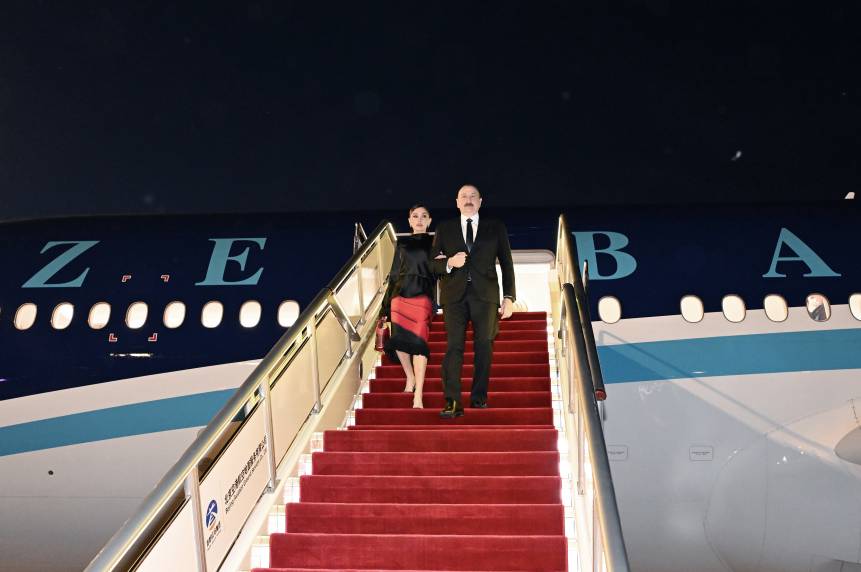
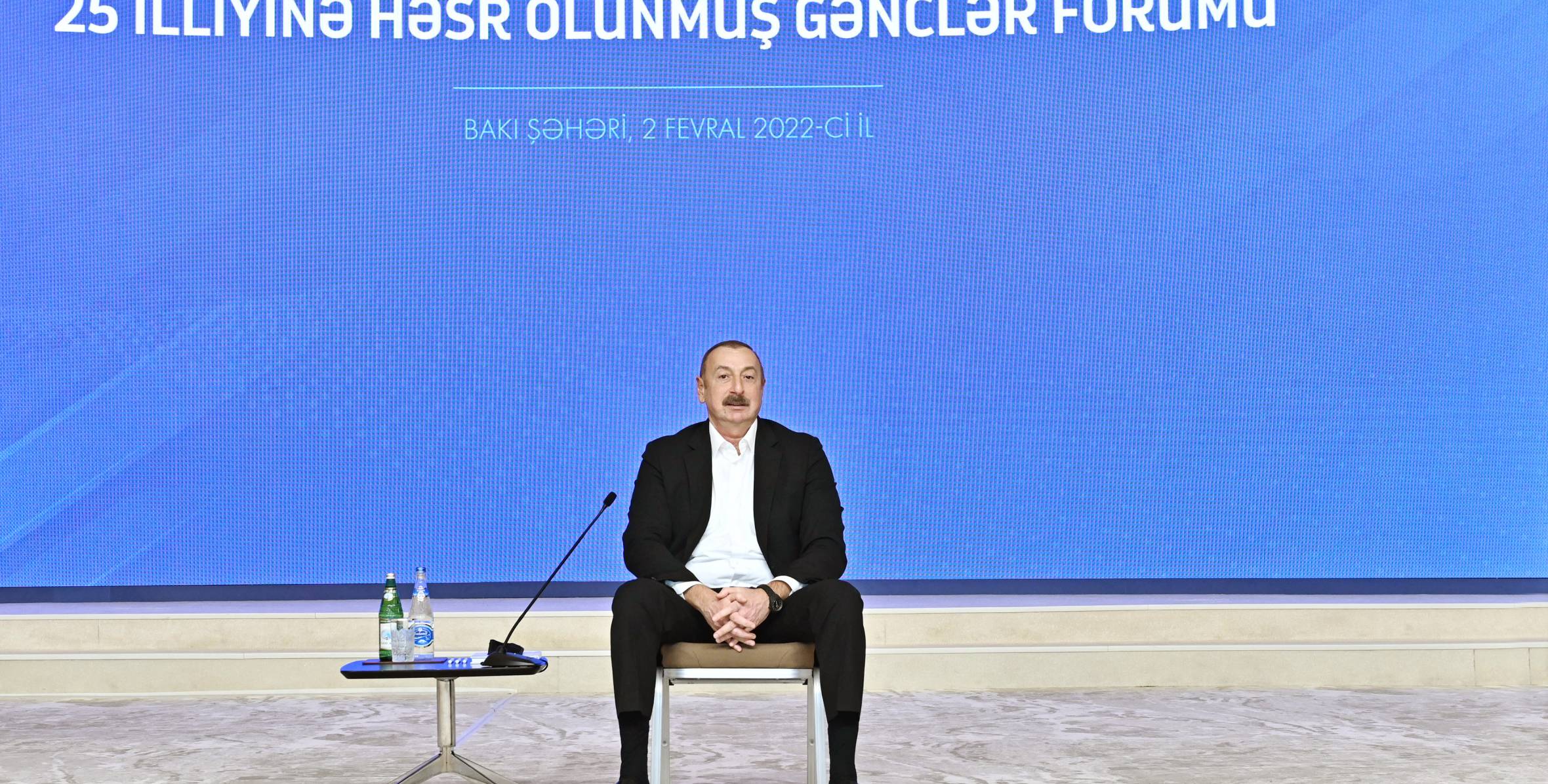
A Youth Forum dedicated to the 25th anniversary of the Day of Azerbaijani Youth has been held.
President of the Republic of Azerbaijan Ilham Aliyev attended the Forum.
President Ilham Aliyev made an opening speech at the Forum.
Opening speech of President Ilham Aliyev
- It is the Youth Day in Azerbaijan today. I sincerely congratulate you and all the youth of Azerbaijan on this occasion.
Twenty-five years ago, by the Order of great leader Heydar Aliyev, the Youth Day was established in Azerbaijan, and since then we have been celebrating this day on 2 February. A year earlier, the first Youth Forum had been organized in Azerbaijan on the initiative of Heydar Aliyev. Since then, youth policy has always been among the priorities of the state. A generation has changed since then, and the young people seated in this hall today were either not yet born or were small children. A generation has changed and Azerbaijan has changed.
If we look at the realities of Azerbaijan at that time, we can see that the situation was very difficult back then. Our independence was only six years old and Azerbaijan was just beginning its independent life. The country was faced with major, serious and fundamental problems. Only three years had passed since the first Karabakh war, and there were high hopes that the international community and mediators would soon resolve the Karabakh issue and restore justice. There were such hopes, and the situation in all other areas was very difficult. You did not see those years, of course. But this is our history, and future generations must know and remember this history. Because it is when we make the right analysis and learn from history that we can move forward with confidence.
At that time, Azerbaijan had not yet fully established itself on the world stage. The realities of Azerbaijan were almost unknown to the world community. Armenian lobbying organizations operating against us at that time and to this day have been spreading false and distorted information about Azerbaijan. At that time, of course, one of the most important issues was to take a worthy place in the international arena.
As for the economic situation, I can say that the concept of the economy did not exist at all at the time. Because after the collapse of the Soviet Union, the principles of a market economy were not fully established in Azerbaijan and private entrepreneurship was at a very low level. Government agencies had not yet mastered new methods of governance. The economic downturn was pervasive and our economic future was in question. Oil and gas contracts had just been signed. In 1994, the Contract of the Century was signed here in this hall, giving us all great hopes. But at that time, of course, it was impossible to predict the implementation of this project. There were hopes, but no confidence. The signing of the contract for the Shah Deniz gas field in 1996 gave us additional hope, but when the Youth Day was established, 25 years ago, of course, no-one could have predicted how much these projects would benefit our country.
Hundreds of thousands of IDPs lived in difficult conditions. People expelled from their native lands lived in tents, under wagons and in unsuitable buildings. So this was the picture of those days. In addition, there was no regular army, and the lack of a regular army led to the defeat in the first Karabakh war. Along with all other external factors, along with the large foreign financial and military support provided to Armenia, we must say that there was no regular army in Azerbaijan at that time.
Under such circumstances, Heydar Aliyev established the Youth Day. I remember some people – I mean those in the government – saying that this was not the main issue, that there are other important issues facing the country, which had to be addressed. However, as always, the Great Leader turned to the youth with great vision, invited them, gave them his recommendations, and practical steps were taken to organize and prepare the youth for future development. If we look at this small historical note, we can see how right Heydar Aliyev was. Because young people, making up a large part of our society, play a very important role in the life of our country today. The initiatives of the young people, their work are visible everywhere today, and, of course, the upbringing of the new generation in the spirit of patriotism, on the basis of loyalty to the state occupies an important place among Heydar Aliyev’s contributions.
Today, of course, Azerbaijan is moving forward with confidence, the main tasks facing the country have been resolved. I mean the Karabakh issue, of course. We are confident in other areas too. It will take me a few hours to list the main highlights of recent years. I just want to say that the opportunities for today's youth are, of course, broader, and young people should take advantage of these opportunities. We live in a free country, we live in a stable country, we live in a confident country. We are rightly proud to be citizens of Azerbaijan, and young people must be active both in determining their future and giving maximum benefit to the state. By saying these words, I also want to say my heartfelt words of gratitude to the youth of Azerbaijan. Because in many cases, especially in the patriotic war, the role of youth proved decisive, and we can rightly be proud of our youth.
Dear friends, I congratulate you once again on this event, on this date, and I would like to conclude my opening speech here. Because I know there are many issues of interest to you, there are many questions to be discussed, and I suggest that we start discussions.
X X X
The Forum then continued with discussions.
XXX
Moderator of the event Jala Hasanli: Thank you for your speech, Mr. President. Our young people sitting in the hall today have many questions for you. Let's start with our first question. Please introduce yourself.
A doctoral student and employee of Baku State University Surkhayli Afsana: First of all, on behalf of all Azerbaijani youth, I wanted to thank you for being with us on the Youth Day and for giving us this opportunity. I am a little nervous, so I do apologize if there are mistakes in my speech. I am very happy to be here today. I am proud. While watching your speeches live on television, I noticed a point that you appreciate the national and moral values of our youth. You always emphasize that. I think that national and moral values are one of the key advantages that distinguish us from the youth of other countries. My question is how you would assess the activities of modern Azerbaijani youth in protecting our national and spiritual values and passing them on to future generations?
President Ilham Aliyev: Thank you, it is a very good question, thank you.
National and moral values are the basis of our state, and I have repeatedly said that the modern and independent Azerbaijani state is built on national values. I am confident that as long as we maintain these values, our state will be stronger and our people will live forever as a free and independent nation.
We know our history very well, and we know that for many years and centuries, Azerbaijan was not independent. It was part of other countries. However, it did not lose its national identity, it preserved its national identity. How? Precisely by always been attached to our national values and traditions. We have always safeguarded them. Although, for example, if we take into account the Soviet era, then the ideology of Marxism and Leninism prevailed. However, despite the fact that we live in a closed society, our national holidays were celebrated every year in Azerbaijani families. From generation to generation, we have passed on this national ideology, our national characteristics, and thus we have protected ourselves from assimilation and external influences. Azerbaijanis have always been open to the world, but they have always preferred their own moral code. If we have preserved these values in the days when we were not free, when we were part of both colonial and other countries for centuries, then, of course, we must preserve these values now.
Now Azerbaijan is an independent state and pursues an independent policy. No outside force can interfere in our work. True, there have been and will be such attempts. However, these attempts have not yielded any results and never will. But there are other challenges, there are other issues that we must continue to educate our youth on the basis of patriotism. It is the duty of every young person to be attached to the Motherland, to love the Motherland, to put the interests of the Motherland and the interests of the state above everything else.
As for the new challenges, this is due to globalization. It is true that globalization is now being removed from the world lexicon as a term. Because there is a lot of resistance in the world against this trend, but it still remains an idea. In other words, globalization is taking root today under another name. The main objective of this tendency is to interfere in the internal affairs of different countries, “to unite people, especially young people, around common values”, to raise cosmopolitan youth and, of course, to govern those countries. So this goal does not and will not change. We have seen this throughout history. Even if we look at the distant history, we see can that the goals and objectives do not change, only the form and the methods of struggle change. In order to resolve a problem, the wrap of an issue or, if it is possible to say so, the packaging, has changed, but the essence has never changed. In other words, the struggle for hegemony attracts special attention, especially in countries of great importance, rich in natural resources and countries with very strategic geographical location. Since Azerbaijan also has all these factors, we have always seen it many times in the years of independence. We have been faced with such intentions, we have resisted them, and I can say that we have been able to overcome these threats. Today, Azerbaijani society and the Azerbaijani government unequivocally stand guard over national interests. As President, I will defend our national values to the end. I will defend our state independence. So when I say independence, I do not mean the attributes – I am talking about real independence. Can we pursue a truly independent policy or not? Or are you at the beck and call of others? Azerbaijan has never done that. On the contrary, we have fought and won on all arenas.
But young people, of course, are more demanding. They are just starting their lives. Frankly, it's easier to lead young people astray or mislead them. Therefore, the aim of these globalists – I call them so – is the youth. That is why foundations are established, donations are made through them and this destructive mission is carried out under various good programs to set young people against their state, first of all, against their ancestors, their history, their values, and then to use them as a zombie. Our young people know this, and I have repeatedly touched upon this issue in various forums, both in contacts with young people and in various speeches. Because this is a topical issue and this issue will never lose its relevance. The sources of this policy may change, it depends on the geopolitical situation in the world, some centers of power are strengthening, others are weakening. But to be honest, I don't see much difference between them in terms of intent, and my experience gives me reason to say so. Therefore, national values are not only our moral duty to our ancestors, but are also necessary to keep our country independent, to protect our country from external influences and not to break those moral bonds between generations. Because we have a very rich culture, history, literature, native language. Our language is also an integral part of these national values. We protected it when we were not free. But today we still need to protect our mother tongue, and we are seeing that. Both on television and in the press, we see that foreign words interfere – either naturally or intentionally. Every language, of course, must develop, but on its own national roots. Our language is so rich that there is no need for foreign words.
All these factors, including our holidays and traditions, should be the main value for all of us. If this happens, Azerbaijan will always be independent and will always succeed.
Moderator: Thank you. Mr. President, under your leadership and thanks to our heroic sons, we have put an end to a longing that lasted only 44 days and liberated our lands from occupation. Today, the whole world is talking about the sons of Azerbaijan and about your heroism. There are war veterans among us. I would like to hear their questions.
Veteran of the Patriotic war Orujali Abbaszade: I am a veteran of the Patriotic war, winner of the presidential award for youth, project coordinator of the Heydar Aliyev Foundation and manager of the Military Trophy Park, which was opened with your participation.
Mr. President, I am 24 years old and I am one of the young people who grew up during your tenure as Commander-in-Chief. During your visit to Shusha, you spoke about the Azerbaijani youth from the Jidir Duzu. You emphasized the role of these young people growing up in the national spirit, especially the young people who grew up during your presidency. My question is what steps these young people, who grew up in the national spirit, should take in the future to prevent the recurrence of these tragedies caused by the hated enemy to the Azerbaijani people and what modern Azerbaijani youth should do to make a greater contribution to our country's development? Thank you.
President Ilham Aliyev: Thank you. This is indeed the case.
People under the age of 29 are considered young in Azerbaijan. If it is possible to say so, the oldest young man today was 11 years old when I was first elected President. This is the reality. During my tenure, I have tried to make sure that more is done to educate young people. I am very happy and proud that most of those who went forward for the Motherland, for the land were young people. This is a source of pride for all of us. Because we have raised such a generation that even young people who did not see Karabakh and who did not experience that bitter history were ready to die for Karabakh, for the Motherland, for national dignity, to become martyrs, to become wounded but raise the glory of our victorious Army. If this policy did not exist, if young people were not educated in the spirit of patriotism, it would be impossible to know what the consequences of the war would be.
Of course, there are many reasons for the victory in the war: both domestic and foreign, and, of course, our strong economy, the modernization of our army. But the main factor is patriotism. I am not saying this just for the sake of it. As the Commander-in-Chief, I said this all the time during the war, as the leader of all operations, and I see that in some cases, even in difficult moments, our servicemen made the impossible possible. The national spirit, national dignity and patriotism drove them forward. No-one can fight against such people. You know, there are many lessons of war – both for us and for the whole world, for the region. One of them is that to fight Azerbaijanis can cost dearly.
Of course, in order to raise this generation, we could not simply limit our work to developing programs, holding meetings and listening to reports. In order to be a patriot, everyone must have devotion and attachment to the Motherland in their hearts. But at the same time, everyone, especially young people, should be proud of their homeland. As a country that celebrated the 30th anniversary of our independence last year, we can say today that we have created a country that every citizen can be proud of. If we look at any field, we can see that we have really made historic achievements. Of course, there are problems and shortcomings. We are struggling with these shortcomings and will continue to do so. But if we analyze this period in general, we will see that we have made historic achievements. As I said, the majority of those who put their chests forward in the war are young people. Of course, the Patriotic war is called patriotic because the whole nation was trying to win this war. In my previous speeches, I have repeatedly said that each of us must bring this sacred day of victory closer every day. The purpose of my work in all areas was to resolve the Karabakh issue: whether this or that step will bring us closer to Victory. The older generation, experienced people, commanders, young people – all our people united as one organism, as one fist, and restored historical justice.
I repeat that the role of young people in this area is great. Today, our heroic youth, our youth awarded high orders and medals by the state, have become an example for children at a young age, at the age of 18, 20, 25, 30, 35 years. They understand this responsibility and should behave in such a way that this responsibility is always on them, that children and teenagers look at them and want to be like them. Look at the tens of thousands of young Azerbaijanis who took part in the war and showed heroism. This responsibility falls on them, and I am sure that young people understand this and will be an example for the new generation with their actions.
Moderator: Thank you. Who wants to ask the next question? Please.
Student of the Azerbaijan State University of Economics Toghrul Babazade: Mr. President, first of all, I wanted to thank you for the special attention and care you are showing for the young people. Although I am from Shusha, I neither saw nor breathed in its air before. My family have always talked about Shusha since I was a child. As my parents talked about their memories of Shusha, a love for Shusha grew in my heart. At the same time, there was a belief that one day we would definitely return to Karabakh, that one day we would definitely return to Shusha, and this is exactly what happened. As a result of your successful policy, thanks to our heroic youth, thanks to our martyrs we will never forget, we have already returned to Karabakh. I have returned to Shusha and breathed in its air. When I was in Shusha, when I saw those beauties and I saw those landscapes, I had a feeling in my heart that I even felt a little anxious, “I wonder if there was a place I missed?”
Mr. President, when you announced the liberation of Shusha in your address to the people, the people of Azerbaijan watching you on television, as well as us, the people of Shusha, felt completely different every second of your speech. We felt happy, we felt sad and we also felt proud. My question is what you, as the leader of all those military operations, the Victorious Commander-in-Chief, felt like when the news of the liberation of Shusha was communicated to you? Thank you.
President Ilham Aliyev: Thank you. Shusha is a dear and native city for all of us. Those who haven’t been to Shusha will definitely go there, of course. As you may know, bus tours are
organized now and every Azerbaijani citizen can go to Shusha. There are wonderful opportunities to go there now.
I had been to Shusha, i.e. before the war, in 1982 – twice, with my father. At that time, in 1982, events were held in both summer and winter months. In winter, in that frosty and snowy weather, the mausoleum of Molla Panah Vagif was opened there. The Vagif Poetry Days were held in summer – in August. I always cherish those memories. When Shusha was occupied, we all thought it was temporary and that we would return there soon. Instead of liberating Shusha, the people in power at that time made empty promises that Shusha would be taken away in the coming days, that Shusha is with us and so on. However, in fact, they were directly involved in the surrender of Shusha to the enemy. It was a betrayal, an act of treason. Today, everyone in Shusha sees that it was almost impossible to take that city. The way we took Shusha is a separate saga, a peak of heroism, a synthesis of spiritual and physical strength. This is the peak of self-sacrifice. However, when Shusha was handed over to the enemy, in fact, it was an act of betrayal, and those who committed this betrayal were punished by God.
Therefore, the liberation of Shusha was one of our main tasks from the first days of the war. I simply couldn’t talk about that. In the numerous interviews, I tried to shy away from this question. But since a direct question has been asked several times, I said that our work would be incomplete without Shusha. In any case, I said what I could say.
Of course, our work could have been not only incomplete, but also undone without Shusha. Our goal was to restore our cultural heritage, and the Shusha operation was carried out in such a way that the city was not damaged. After we had liberated Shusha, the Armenians bombed Shusha with Iskander-M missiles. True, then they denied it, and then said some funny words, as if this Iskander exploded by 10 percent. This is all child’s talk. The Iskander-M missile was found there after the snow had melted, and it is on display in the Military Trophy Park not far from here now.
In other words, Shusha is an alien city for Armenians. After the second Karabakh war, the Armenian leader said the same thing and repeated my words. If it were an Armenian city, then why is it in such a bad condition? Why didn't you look after this city? Why did you dry up all the springs? Why did you demolish all historical sites? Of course, these historical sites belong to the Azerbaijani people. Given the Armenian fascist nature, this is not a surprise to us. Palaces and mosques were destroyed by Armenian savages. But why did you destroy the springs? So it is an alien city to them. When we liberated Shusha, only 1,500 people lived there. True, when we approached Shusha, they left, but 90 percent of the people living there were soldiers and their families. Well, if this is an Armenian city, why don't you live here? Why is it so dilapidated? Why have you been destroying the city for all these years?
For us, Shusha was a sacred symbol. Many of our cities, almost every part of our country, have a special historical significance. For me, to be honest, there is no difference between cities and regions. Every inch of land is my homeland and each region has its own beauty. Of course, Shusha also has beauty: the landscape, the natural terrain, its location on a rock, of course, the air, the beauty. But the importance of Shusha for the people of Azerbaijan was not limited to this geographical landscape. Shusha has a great symbolic meaning, which I must also say, especially during the occupation.
Before the occupation, that is, during the Soviet period, I think that Shusha was important for the people of Azerbaijan because it was an ancient Azerbaijani city, a historical Azerbaijani city, and it was groundlessly included in the Nagorno-Karabakh Autonomous Region, which was artificially created by the Soviet government. In other words, yes, the Nagorno-Karabakh Autonomous Region was part of Azerbaijan, but it included the city of Shusha. There was an Azerbaijani among the leadership of the former Nagorno-Karabakh Autonomous Region, among members of the Bureau at the time. There were nine or 10 bureau members, and one of them was Azerbaijani – the head of Shusha, who was first secretary at the time. So I think that in addition to all these natural beauties of Shusha, its place in the hearts of the Azerbaijani people was due to the fact that it was a part of Azerbaijan, but also a part of the so-called artificially created Nagorno-Karabakh Autonomous Region. Armenians living in the center of Nagorno-Karabakh were responsible for the administration of Shusha. This is why Heydar Aliyev paid special attention to Shusha. Many enterprises were established there at the time, and it was not easy to erect the mausoleum of the Khan's vizier in Soviet times.
During the occupation, the special treatment of Shusha was explained by this injustice. Because for me, the occupation of Aghdam, Zangilan, Gubadli, Kalbajar, Lachin, Fuzuli and Jabrayil was as painful as the occupation of Shusha. However, the injustice done to Shusha aroused a special love for Shusha among the Azerbaijani people. We need to know that. The liberation of Shusha during the war was not only of strategic importance. However, after the liberation of Shusha, the back of the Armenian army was completely broken. It was our duty to return our national symbol, to raise the flag there, and from the first day of the war, we were heading for Shusha. The course of the war is being analyzed now. I have already made some information public several times, but not all of it. However, I want to say unequivocally that the liberation of Shusha was at the forefront of all our operations, and we liberated Shusha in such a way that the enemy stopped its resistance.
The liberation of Shusha, as I have already said, was based on an operational plan. After Hadrut, our lions and heroes crossed forests and paths to Shusha. There was no road we now call Victory Road. Approaching Shusha from different places, we all knew perfectly well that liberating Shusha would be a very difficult task. Because there were strong fortifications there. We could not carry artillery or armored vehicles there. In other words, we fought only with light weapons we could carry. There were maximum grenades. The Armenians had tanks and artillery at their disposal – strong fortifications.
Of course, Dashalti had to be taken before Shusha. Anyone who goes to Shusha now can see that the more dominant position you have in Shusha, the easier it is to keep Dashalti under fire. Our confidence was bolstered when we took Dashalti. The battles for Shusha lasted several days. I was sure that our soldiers and officers would liberate Shusha. We achieved this with great self-sacrifice and heroism. The complete liberation of Shusha took place on 8 November. Because on 8 November, all the resistance of the Armenians was completely crushed. But we were already in Shusha a couple of days before that. City battles were going on.
I was proud to receive this news. I felt proud that we have fulfilled our duty to history. I regret that our elders did not see this day. Because tens of thousands, maybe hundreds of thousands of Azerbaijanis left this world without seeing this – without seeing Shusha, without seeing freedom. At the same time, there was a sense of confidence, because the war was not over. True, I knew that the fate of the war had already been decided, but the war itself was not over. The next day, Shusha, as I said, was bombed with Iskander-M missiles. Fortunately, no-one was injured. We were confident that we would defeat Armenia to the very end. At the same time, that day I began to think that after the war we must assert new realities of the South Caucasus in the world.
The next day, Armenia surrendered, and we, as they say, without celebrating this holiday, not even for one day, began to work hard to strengthen ourselves there, to strengthen all our positions and strengthen our political and diplomatic efforts so that the world, leading countries of the world accept this new reality. This took some time. But we have achieved this.
Moderator: Thank you, let's hear the next question. Who wants to ask a question?
Employee of the Regional Development Public Union of the Heydar Aliyev Foundation Shahla Talibzade: Mr. President, I am an employee of the Heydar Aliyev Foundation's Regional Development Public Union. At your initiative, I have participated in a project to restore the Topkhana forest in Shusha. I am particularly proud of that day. We got acquainted with the large-scale landscaping and construction work carried out under your leadership there. We, the youth, are always ready to take part in the revival, reconstruction and restoration of our liberated lands. Mr. President, my question is related to this. What are the responsibilities of young people in the further steps in the area of landscaping, construction, reconstruction, and what initiatives and projects await us in this regard?
President Ilham Aliyev: Thank you. Restoration work has now gained momentum. There is ample information about the work we did last year. I have provided this information. It has also been covered by representatives of relevant agencies, as well as the media, so I do not want to repeat anything. This year, both traditional work, i.e. infrastructure work, as well as the construction of residential buildings for the IDPs will begin.
As for infrastructure, we built our entire energy network last year. But as you know, when the Armenians left Kalbajar and Lachin, they were given time. Unfortunately, during this time, they cut down our forests, burned houses and also demolished existing hydropower plants there. This is why we started it all last year. Five hydropower plants will be built on the liberated lands this year. This will both strengthen the overall energy potential and create jobs for each newly created infrastructure facility. For example, many people working in hotels and other places in Shusha are children of Shusha residents. True, they were children, they are as young as you, but they are already working there. As all our cities revive, young people with advanced knowledge, young people from liberated areas must fill in the workplaces there.
Among the projects planned for this year, I must note that the construction of Aghali village has already been completed. This is a pilot project and it has a great symbolic meaning. Because this year, the first former IDPs will return to their homeland, and the village of Aghali is the embodiment of what we want. The level we want to see in these lands and the comfort we want to create for the people are reflected in this project. But at the same time, it is a pilot project. Work on this project will be evaluated and analyzed after that, and I am sure that subsequent projects will take into account all this analysis. But it is very symbolic. Because, as it turns out, we want to accommodate the residents of Aghali village somewhere in the spring and summer, or less than two years after the war. Less than two years on, the return begins. This has a great symbolic meaning.
Zangilan Airport will open this year. There will be quite a few jobs there, including those for young people. Infrastructure projects, the Zangazur corridor ... We will definitely bring the railway to the Armenian border in 2023, and the construction of the highway is underway. So young people are heavily involved in all this work. Because there are thousands of people working in various fields now. If we take into account that the liberated lands will be built on the basis of a Smart City and Smart Village models, the green energy zone – all these new areas, new professions, of course, will be available to young people. Because these innovations, the innovations related to the Fourth Industrial Revolution, are first of all mastered by the youth in Azerbaijan, and we will be implementing this policy through the youth. Various agricultural projects are now being implemented in the liberated areas. I can say that a sowing campaign is planned on 40,000-50,000 hectares this year. This will contribute to our food security. Most of the people working there are young people. Therefore, young people, of course, will play a leading role in this work. They should also be proactive. Young people have a different outlook, they are more aware of all the modern processes taking place in the world. Therefore, we know what should be done in these lands to provide the people who will return there, those who have been dreaming about these lands for 30 years, to create very good conditions for them.
During my visits to those regions, I also met with representatives from those regions. Our plans were introduced to them and we discussed them together. What do they want to see their cities and villages like? This must be taken into account. At the same time, modern requirements must be taken into account. Architecture must be taken into account. We, of course, need to create beautiful cities in terms of architecture. The creativity of young people, as they say, is very welcome here. I am confident that young people will be active in the implementation of real projects, as well as the presentation of new projects.
Moderator: Mr. President, there are people with disabilities among us. As a result of the right steps you have taken in this direction, we are seeing these people in society today. I would like to hear from that lady, please.
Writer Jamila Mammadli: Hello, Mr. President.
President Ilham Aliyev: Hello.
Jamila Mammadli: I am a writer and actress. I think that the question “What can young people with disabilities do in our society?” is no longer relevant. We are seeing a lot of evidence of this. Unfortunately, the number of young people with disabilities has increased after the war. There is a need for inclusive platforms where young people with disabilities can develop themselves, demonstrate their skills and play leading roles. Of course, we see progress in this direction, but what additional measures are being planned? I would like to know this.
President Ilham Aliyev: Of course, this work is being done, and people with disabilities, including young people who fought in the Patriotic war, are being taken care of by the state. In general, I can say that there has been very serious progress in this area recently. I have repeatedly participated in the opening of new facilities myself. People with disabilities are now actively involved. Their handicrafts are also on display, talented young people who are interested in art are already putting on performances, and there are wonderful conditions for this. A few months ago, I visited the opening of a new center in Baku, and I appreciate it very much. Because Azerbaijani society has to be inclusive – there is such a word in the lexicon now. Although this is a new word, it has a very good meaning. In fact, it has always been the case. Because it is in the nature of our people to always help those who need help. It is a characteristic feature of our people and a very good quality. The state, of course, must fulfill its duty and pay attention to all people with disabilities. Tasks have been given and additional steps will be taken in this direction.
A large-scale program is being implemented for the families of martyrs and those disabled in the war. I do not want to compare Azerbaijan with any other country, but it is also true that I personally do not know of another country where such a program would be implemented. Unfortunately, there are many countries in the world that have emerged from wars, bloody clashes and conflicts, but these countries do not have a similar program. I am not talking about Armenia where people with disabilities are excluded from society in general, while those disabled in the war are not taken care of. I am saying this on the whole. I do not know whether there is another country that would do as much as Azerbaijan does. But again, I am not saying this for comparison, this is simply our policy. To date, more than 10,000 families of martyrs and those disabled in the war have been provided with houses and apartments. This is a very large number. More than 7,000 cars have been provided. I know that there is no other country that would have such a program. Last year alone, 1,600 disabled and martyr families of the second and first Karabakh wars were provided with apartments – 850 veterans of the first and 750 veterans of the second Karabakh war. I should also note that there are also veterans of the first Karabakh war who have not received housing yet. Therefore, there must be a queue here. However, those who took part in the second Karabakh war are still in the spotlight. This year, the state will provide housing to at least 1,600 people of this category. As you know, these apartments are also of high quality, and I have attended most of the openings myself.
Prosthetic appliances are provided to the servicemen who have lost their hands, arms and legs. According to the latest information provided to me, there are about 200 veterans of the Patriotic war in need of prosthetic appliances, and 95 percent of them have already been provided with prostheses. These prostheses are the latest technology and provide the chance of returning to normal life.
I must also say that on my instructions, we have included the heroes of the Patriotic war in the housing program. Some of them were awarded this high title posthumously, and their families will be supported as martyr families. Other heroes of the Patriotic war have already been provided with quality and spacious apartments by the state. We have about 90 heroes of the Patriotic war, and 95-97 percent of them have been provided with apartments. So the state will do this as much as possible, and we approach it from a broader perspective. Not only those disabled in the war, but also people with disabilities as a whole should be provided with greater care by the state. There must be conditions to involve them in active work and to use their intellectual potential. This is very important, and I repeat, we have great national traditions in order to pursue this policy. The state's capabilities are expanding now. The state budget allocated for these purposes is growing every year, including this year. This will always be in the spotlight.
Moderator: Yes, it is actually the result of this attention that there is no such concept as a handicapped person in our society today. There is a physical limitation, and when we see these young people in society, we see that this limitation is only superficial.
Who wants to ask the next question? Please, if you have a question, let's hear it.
Ulviya Akhundova: Mr. President, I represent the Debate Public Union and the National Council of Youth Organizations in Civil Society. Today, social networks have become the main source of information and a part of reality. We closely follow all your activities. We also enthusiastically watched all your posts during the Patriotic war. This showed us the importance of social networks and allowed us the opportunity to get all the information from accurate, efficient and direct sources. We, the youth, also have certain activities in this direction, and we are interested to know in how you evaluate our activities on social networks and what your future expectations are? Thank you very much.
President Ilham Aliyev: Thank you. During the Patriotic war, our young people were very active on social networks, and I can say that in general, we got the upper hand in the information war during the war – both using traditional information resources and, at the same time, social networks. We saw again how much young people love the Motherland. I must also say that not only Azerbaijani citizens but also Azerbaijanis around the world joined this cause – voluntarily, on their own initiative. No-one gave them any instructions, as they say, they became soldiers in this information platform and conveyed the truth about Azerbaijan to the world. This is not only our opinion, but also the opinion of international analysts, who are surprised that Azerbaijan has gained an advantage in the information space. Why were they surprised? Because there was always an opinion that the Armenian lobby and Armenian organizations were active everywhere. They are now in charge of many leading media outlets in the world's leading countries and use this opportunity to conduct a smear campaign against Azerbaijan. In other words, everyone expected that Armenian theses would dominate the information space, so to speak. They were surprised to see that we overcame Armenia here as well. What does this show? It shows that, first of all, we had the right upbringing. Secondly, we have the knowledge, and thirdly we have access to modern technologies. In order to gain an advantage on social networks, of course, the information shared there must be effective, reflect the truth and comply with all ethical rules. Because Armenia also tried to fight us on social networks, but their struggle was similar to the struggle in the war – very low and cowardly. Their method of struggle was slander, lies and insults. Ours was based on the truth and, as they say, the steps taken on the basis of following the general rules of conduct.
At the same time, we were telling the truth. Every day, I told the truth in my appeals, and so did other bodies. Armenians lied, and even today the Armenian military and the people in charge of the media in the army are being ridiculed there. Their names have become a symbol of lies. How many lies can a person tell? This was ridiculous. Because sooner or later this lie would be exposed. The official Armenian propaganda’s communications about the liberation of of Fuzuli, the liberation of Hadrut and the liberation of Shusha was based exclusively on lies. This, of course, showed everything for the world community and people from different countries operating in the networks, and the respect for us increased. Therefore, the activity on social networks, I think, was very successful during the war. In general, social networks have a great role in conveying the truth about Azerbaijan to the world. Because this is an innovation, and we must be ready for any innovation. We cannot lose our positions in that space. On the contrary, we must become stronger there and, of course, there is still a need to convey the truth about Azerbaijan. First, because there is still no exact information, and secondly, deliberately distorted information about Azerbaijan and the Karabakh issue is still being circulated today. Look, 30 years have passed, but Armenian fairy tales still dominate the information space in some leading countries of the world. Not because they believe in those tales, but because this meets the political interests of the countries or the voices of the Armenian lobby, the votes in the elections. Therefore, Azerbaijan is perhaps one of a handful of countries in the world that is regularly attacked, attacked by misinformation and slander. Because behind the lies about Azerbaijan spread not only on the networks but also in many European and American media outlets, we see the long ears of the Armenian lobby, so to speak. So 90 percent of the articles are written by Armenians. They hide behind other names, but we know where it comes from and we must be ready for that. Because the war is over, and I have said we do not want a third war. If we do not see a threat to ourselves, we do not intend to take any action, but the information war continues and will not end. It is not our choice, but if someone attacks you, you have to defend yourself and defend in such a way that you always win. All the preconditions are in our favor. Because the truth is on our side, international law is on our side. Victory in the war increased the respect for our country and people. Simply being active, identifying the right information channels, transmitting the amount of information appropriate to different categories of users – all this, of course, requires great skill. Government agencies must also be active in this area, and many of our government agencies are already using these opportunities. It must be widespread so that we can always convey our truth in this new information space.
Moderator: Thank you. Next question please. Please, madam, let's hear your question.
Student Gullu Huseynli: Mr. President, I, for my part, also want to thank you for paying attention to our youth and giving us such an opportunity. I am a final year student of chemical engineering at Baku Higher Oil School, but I also have a startup and want to be a young entrepreneur. My question will be related to this. We are already living in the period of the Fourth Industrial Revolution, and the demand for new technologies, methods and innovations is growing. What do you think about the challenges of this revolutionary era, and what advice can you give to people like me who want to become young entrepreneurs? Thank you very much in advance.
President Ilham Aliyev: Thank you, you are absolutely right, the Fourth Industrial Revolution is already a reality and we are taking steps in this direction so as not to lag behind. I think it has been two years since the Davos World Economic Forum and Azerbaijan signed a document to further unlock the advantages of the Fourth Industrial Revolution, to apply them to Azerbaijan and to coordinate this work in the region. This is why it is no coincidence that the Davos World Economic Forum, as you know, is the most prestigious and influential forum in the world, and it is attended by heads of state and government of the world's leading countries. So we should know that there is no other forum at the level of Davos – whether economic or political – and Azerbaijan was chosen for the whole region. Not only as a country in itself but also for the South Caucasus and neighboring countries. Why? First, because there is confidence in us. Secondly, because Azerbaijan is a stable country, and we are always ranked in leading places in the reports of the Davos Forum – they are published every year. In addition, we are in the top 10 according to the government's propensity for reform index. Just imagine that we are in the top 10 for this parameter worldwide, which really clarifies many things. This work has already started. So what do we want? Of course, we must be open to all the positive trends in the world, bring technology to Azerbaijan, apply the most modern methods and techniques in all areas in Azerbaijan. This is what modernization means. As I mentioned earlier, we are a strong state based on national values, but we are also a country that is open to the world, not confined to itself. We bring and apply the most advanced technologies and innovations. So we are trying to do this. This is our policy.
Of course, the establishment of the Center for the Fourth Industrial Revolution in Azerbaijan will also help us gain access to a wider information space. Because the world is changing. The world of 25 years ago was very different from the world today. We also need to know that some, perhaps most of the traditional professions will be gone in a few years, so there will be no need for these professions. However, unlike many countries, Azerbaijan is a country with a growing population. In European countries, the population is either stable or in decline, while in our country it is growing. It has increased from 7 to 10 million since we gained independence. All this means new jobs. But if the Fourth Industrial Revolution leads to the elimination of jobs – this is already an undeniable fact – then we must be prepared for new professions that may arise as a result of the Fourth Industrial Revolution. If we are not ready, those jobs will be lost, the number of unemployed will increase, we will not be ready for new jobs. This means not only keeping unemployment at a normal level, but also development. If we fall behind in this development, then what will happen to us? Of course, we are not a country to invent any technological innovations, even though it is possible. Talented Azerbaijani youth now sell startups to large companies and set up businesses in America and Europe. So the intellectual potential in Azerbaijan is very high, which is directly related to education.
But in principle, we see ourselves as a country that applies technology, and we must be just one step behind those who invent technology. The most modern technologies must come here, we must bring them – both the state and the private sector – and thus ensure development. New professions are already emerging. I repeat that having a center here will allow us the opportunity to plan our economic policy, stimulate the creation of new jobs by the state, give an impetus and change the professional profile of people. This is an area that requires a lot of effort and knowledge. In other words, we must adapt to the Fourth Industrial Revolution, and if we do not, we will be left behind. We can't afford that to happen. Because we are in the conditions of war, we must constantly develop and be strong. Power is associated with progress. Therefore, I repeat, very serious work must be done by government agencies. First of all, the Ministry of Education – the minister is here. They are working on it. The Ministry of Economy, because using the tools available to the Ministry of Economy, we can develop and stimulate various areas. This is large-scale work that the government as a whole and all members of the government must be active in so that we do not lag behind.
Moderator: Thank you. Next question. Please, you have the floor.
Student Ordukhan Gahramanzade: Mr. President, I express my deep gratitude to you for receiving us on this day, which we have inherited from the National Leader. I am a final year student in International Relations at ADA University. At the same time, I am the head of the Non-Aligned Movement's Youth Network, which was established on your initiative. While studying within the framework of international education exchange programs both in Azerbaijan and abroad, I tried to be a part of the volunteer movement and be an active participant. With your support, the volunteer movement has expanded in recent years in our country. In particular, I would like to emphasize the exceptional role of declaring 2020 a Year of Volunteers in this process. My question is related to volunteering. I want to know what your thoughts are about it, how you see the development of the volunteer movement in Azerbaijan and what your recommendations for us are. Thank you.
President Ilham Aliyev: The volunteer movement is already expanding in Azerbaijan, and as you know, this movement started in our “ASAN xidmət” centers. “ASAN” volunteers were our first volunteers. But I must say that again that, if we return to our traditions, the people of Azerbaijan have always helped those in need. This is our national feature. That is why volunteering is in our blood. Certain organizational steps simply had to be taken to bring it into action, and they were taken. Now, after “ASAN xidmət”, there are groups of volunteers in several other government agencies, and I welcome that. This is very important for both young people and the country. Because young people gain extensive experience. The number of “ASAN xidmət” centers has reached 22. Recently, the 22nd was opened in Ganja, and more than 80 volunteers are already involved there. In general, since the establishment of “ASAN xidmət”, perhaps tens of thousands of volunteers have worked in these centers, and many of them later proved themselves in life. Because the work experience gained there, as well as the cultured behavior and kindness promoted there, of course, enhance the qualities of each young person. So I repeat that the volunteer movement in Azerbaijan has now expanded and gained momentum.
I have ordered that groups of volunteers be created in government agencies. I think that private companies should also be involved in this work. In fact, it is a very noble deed. It is a very noble deed to help someone free of charge. Going back to these public services, I would like to say that the public services sector was usually the most painful, problematic, corrupt and rude. Therefore, the new approach revitalizes society. It not only frees us from corruption and bribery, but also increases the purity of society. Because the Azerbaijani people have always been a civilized people. Our rules of conduct in society are quite unique. This is why foreigners visiting Azerbaijan fall in love with our city and Baku. At the same time, I have heard from many that it is the attitude of the people that impresses them the most. So it is a reality, it is our great asset. We must protect it. Where does this come from? First from traditions and second from public policy. Because our policy also depends on traditions. We are hearing and seeing in some places, for example, that the attitude to foreigners is different, that it is not so pleasant, on the contrary, there are some contradictions and conflicts. We cannot have this at all. Volunteering is also a new manifestation of other traditional rules of conduct. Therefore, I look at this movement very positively in terms of the organization of young people, uniting them for a cause, the purification of society and the training of human resources. Therefore, I am sure that this movement has a great future in Azerbaijan.
Moderator: Thank you. Next question please. Let's hear your question.
Student Aybaniz Hashimova: Hello, Mr. President. I am a first-year student at the Azerbaijan Medical University and the daughter of National Hero Polad Hashimov. I am a little nervous, I am sorry. I would like to take this opportunity to thank you for your special attention and care for the families of martyrs. I have no questions, thank you very much.
President: Thank you very much, I wish you every success.
Aybaniz Hashimova: Thank you.
President: Our national hero Polad Hashimov sacrificed his life for the Motherland and died as a hero. Before the war, I was driving through the city of Gabala. There were many events there. I saw a portrait of him posted on a building. I stopped the car, came out and addressed the people of Azerbaijan in front of his portrait. I said a few words about him and the future in general. His blood should not have remained on the ground, and it did not. We took revenge for him on the battlefield. Heroes like Polad Hashimov will always live in the hearts of the Azerbaijani people. I highly valued his work as a serviceman. I personally presented high awards to him. I was glad that such a professional and patriotic people of a new generation are growing up in the Azerbaijani Army.
I can say that his death shocked us all. At the same time, his death urged us all to be strong again. He showed us all that we must liberate our lands at all costs. We already knew that, and I have already said that. It is no secret – I saw for many years that this issue would not be resolved through negotiations, meaningless and empty negotiations. I must also say why we did not drop out of the talks. Because if we had dropped out of the talks, they would have started blaming us. Those who were already engaged in this issue were looking for an opportunity to put all that burden on us. It seems that there was a desire to put aside the four resolutions adopted in 1993. However, they explicitly state that the Armenian forces must leave our lands immediately and unconditionally. Not only were they not being implemented, we were also faced with a desire to forget it. That is why I have long known that war was inevitable. The strengthening of our army and all other measures were aimed at this very goal. However, the heroic death of Polad Hashimov and other heroes of our country once again shook and mobilized the whole nation. Because there has to be a combination of all the factors to wage war, all the factors – strength, resolve, courage, patriotism, and the unity and readiness of the people, as they say. Notice that we didn't have a single deserter during the war. But we did in the first Karabakh war. Why? Because there was no faith at the time. At that time, while war was underway, the then government was bombing Ganja. Can you imagine that? Lands were being lost there, but those sitting here in Baku, the government was bombing Ganja and taking Azerbaijani soldiers prisoner. Was it possible to win the war with such a government? Of course not! There was no confidence. The lands were being lost there, but they were engaged in organizing rallies here in the vicinity, in front of this Milli Majlis, accusing each other, saying hollow words and making false promises. It was all empty. Therefore, the people had to be ready. I can say that by his martyrdom Polad Hashimov played a great role in preparing the people for war. If it hadn’t been for that, it would have been difficult to wage war.
I recently said in front of the houses destroyed by Armenians in Ganja that even those coming out of the rubble, those who had lost their loved ones were saying that we should only move forward. I remember giving many interviews during the war. I still remember a question. One journalist said that he had attended a funeral in Barda or Tartar. After this interview, he said in a conversation that he was surprised and saw that there was completely no dissatisfaction with you or the government. I was waiting for them to blame you, saying why Ilham Aliyev had started this war as a result of which we have lost our relatives. He said that he had been to many places and battlefields and had never seen such enthusiasm. Everyone was saying that they were rallied around the President, everyone was saying that he should not stop. This is what our people are like. The people had to be ready for it and they were. Therefore, the loss of Polad is a huge loss for us, a great sorrow. First of all, for you, for your loved ones. But you can be proud that you had a father such as Polad, and he will live in the hearts of our people forever.
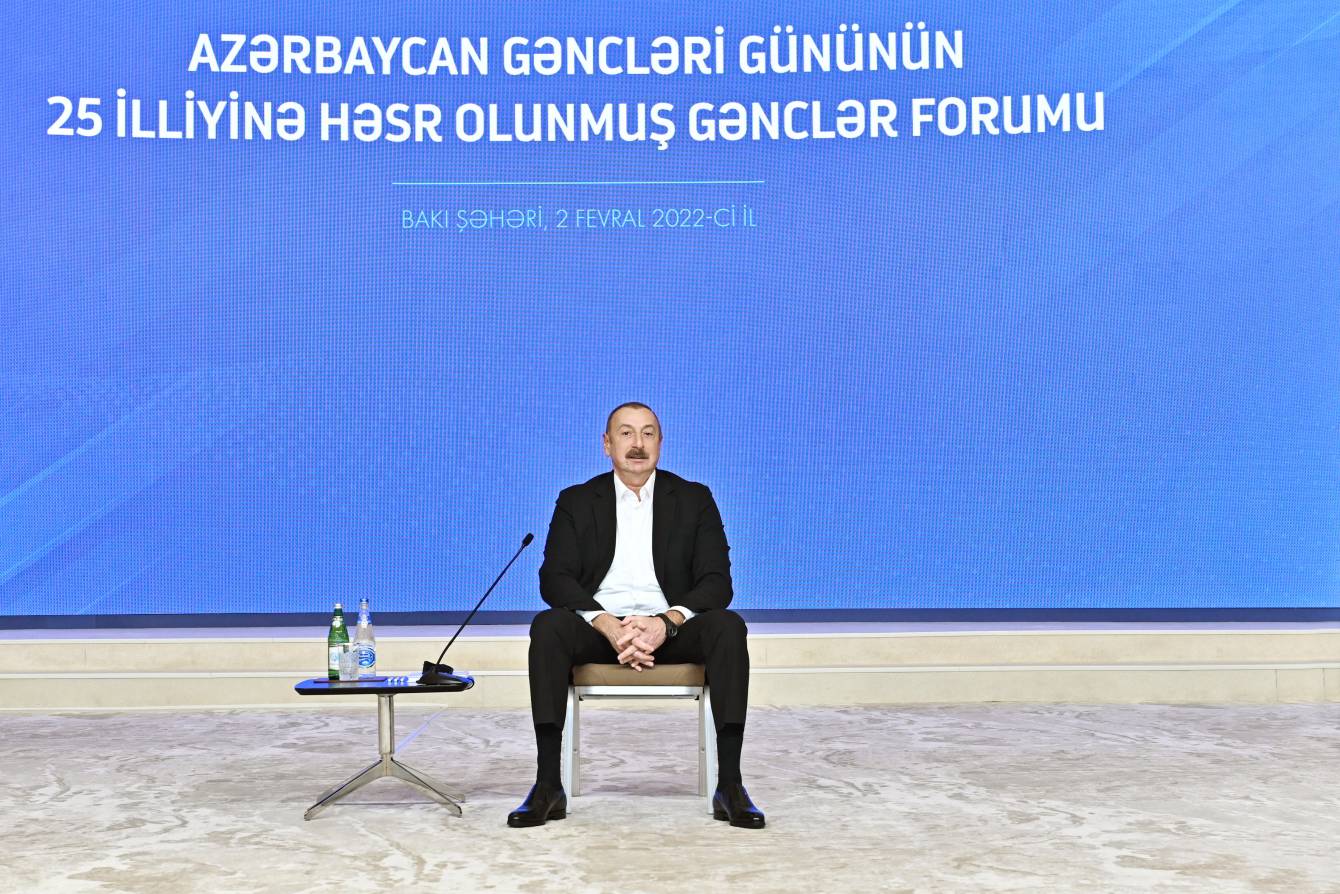
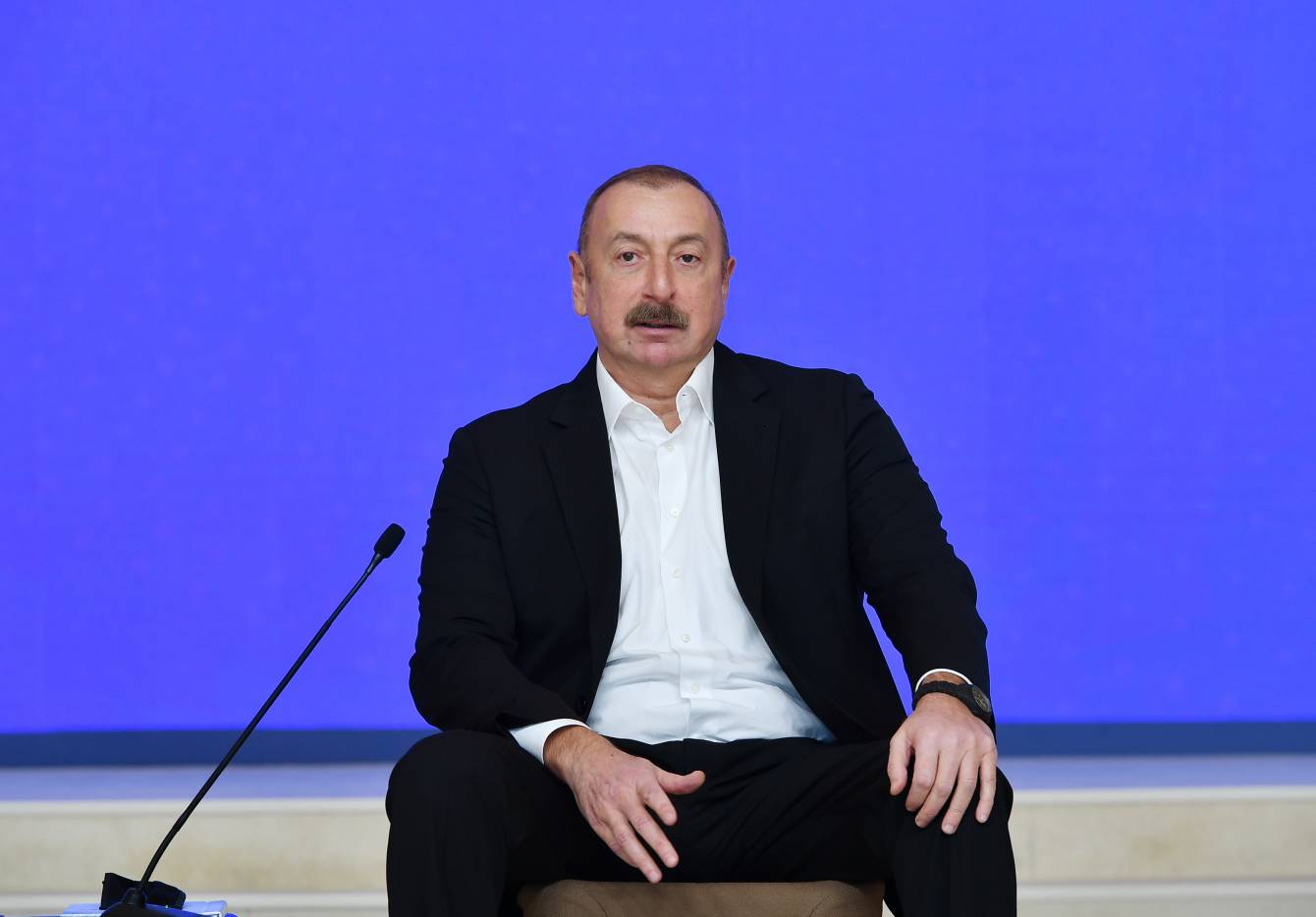
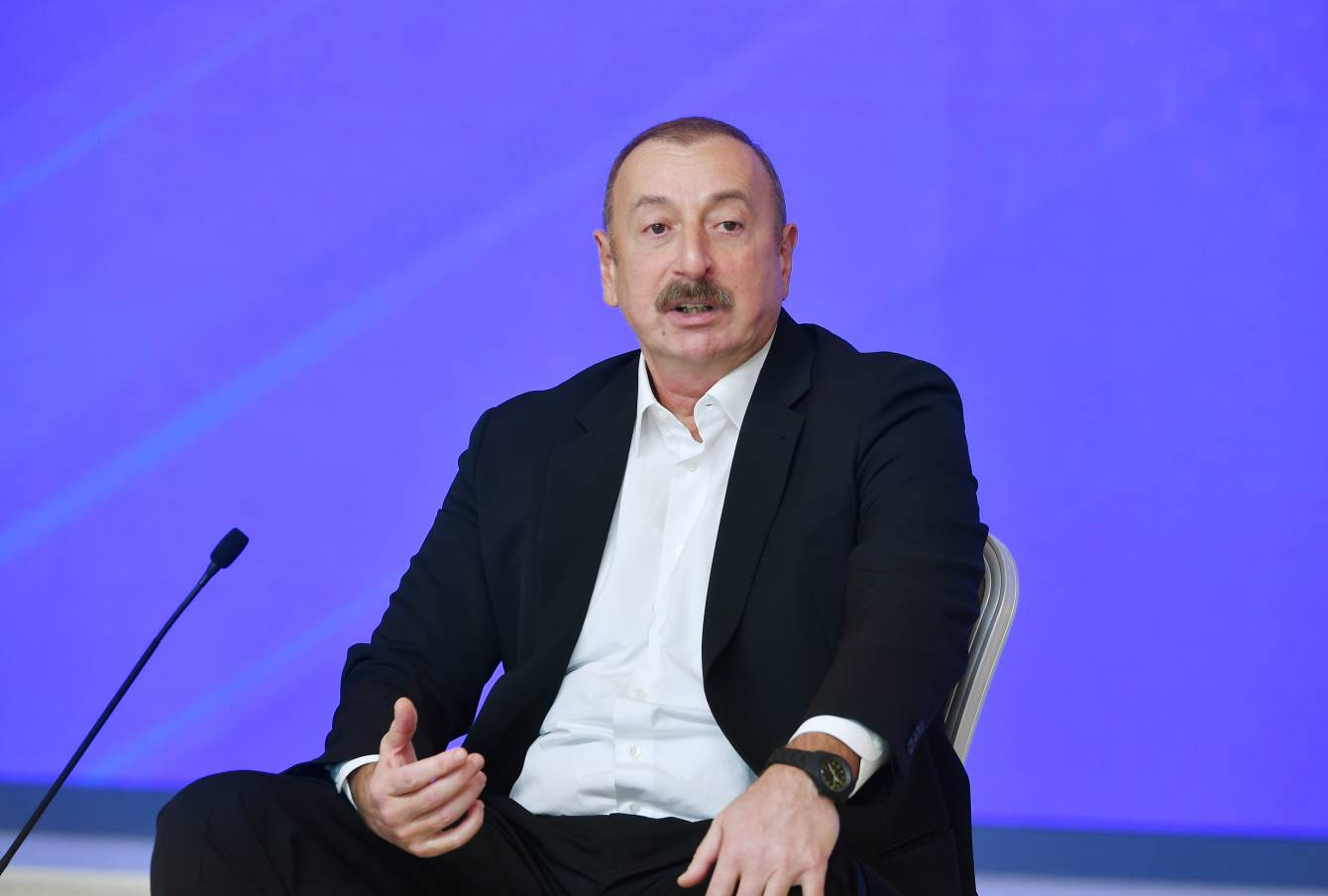
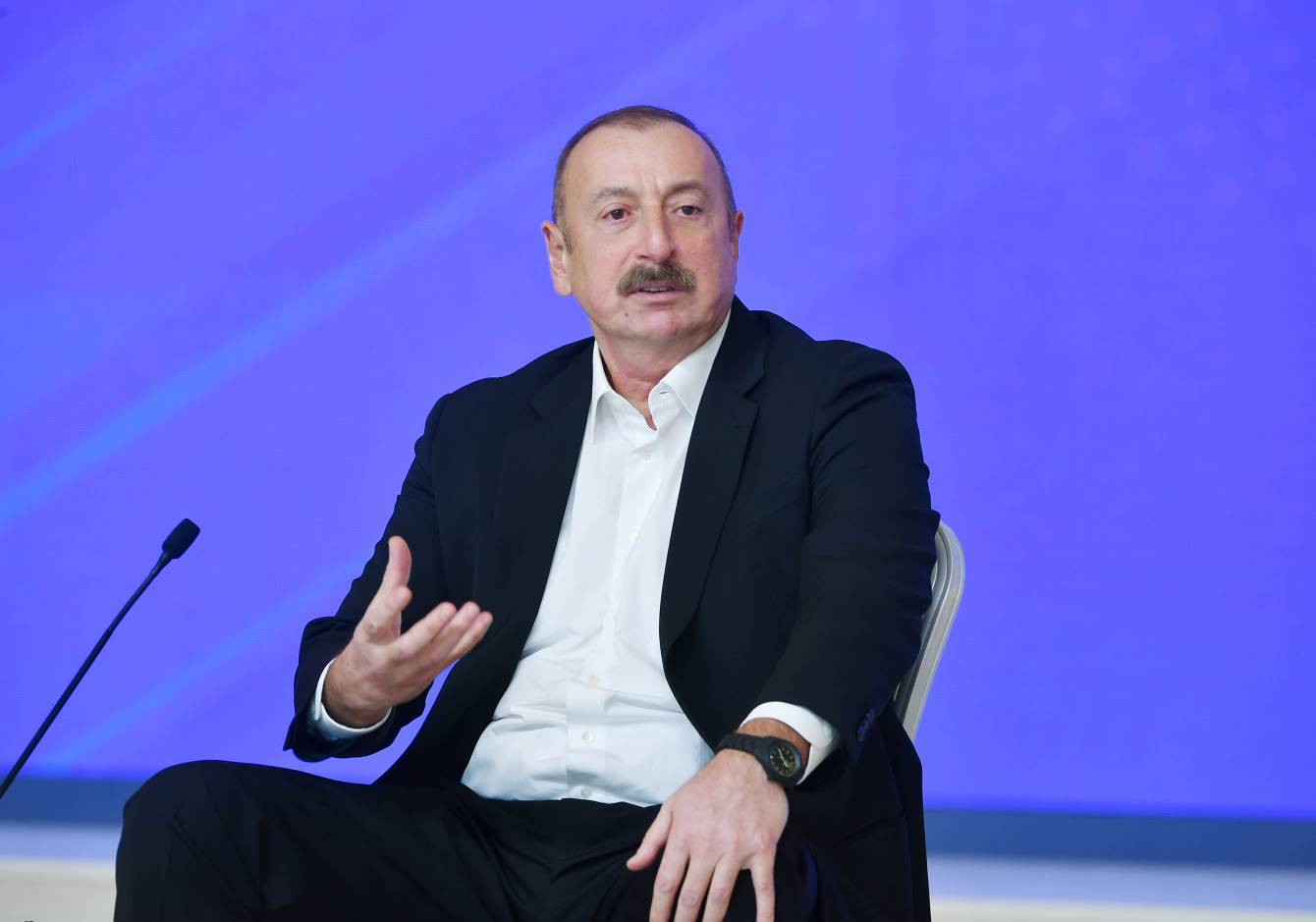
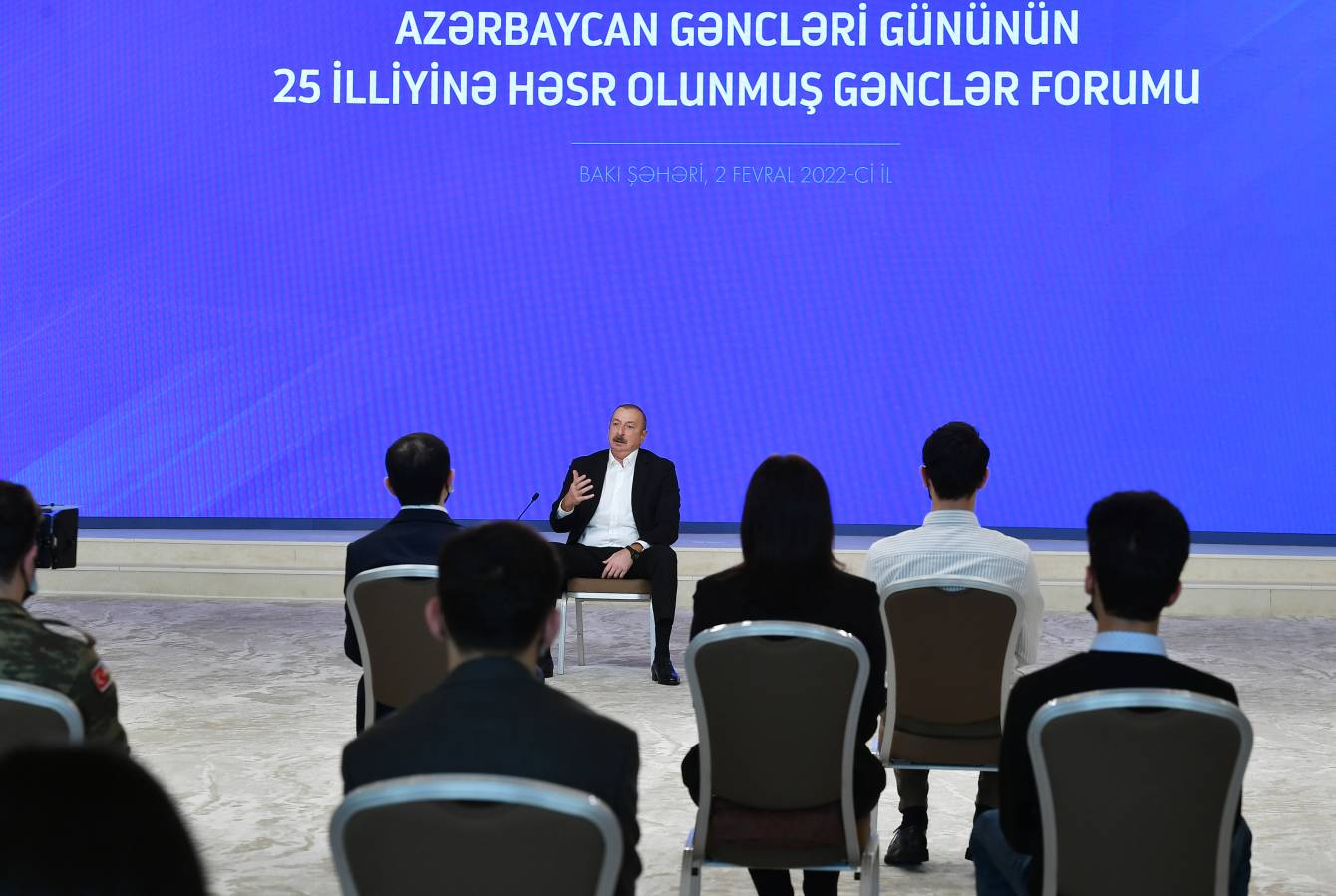
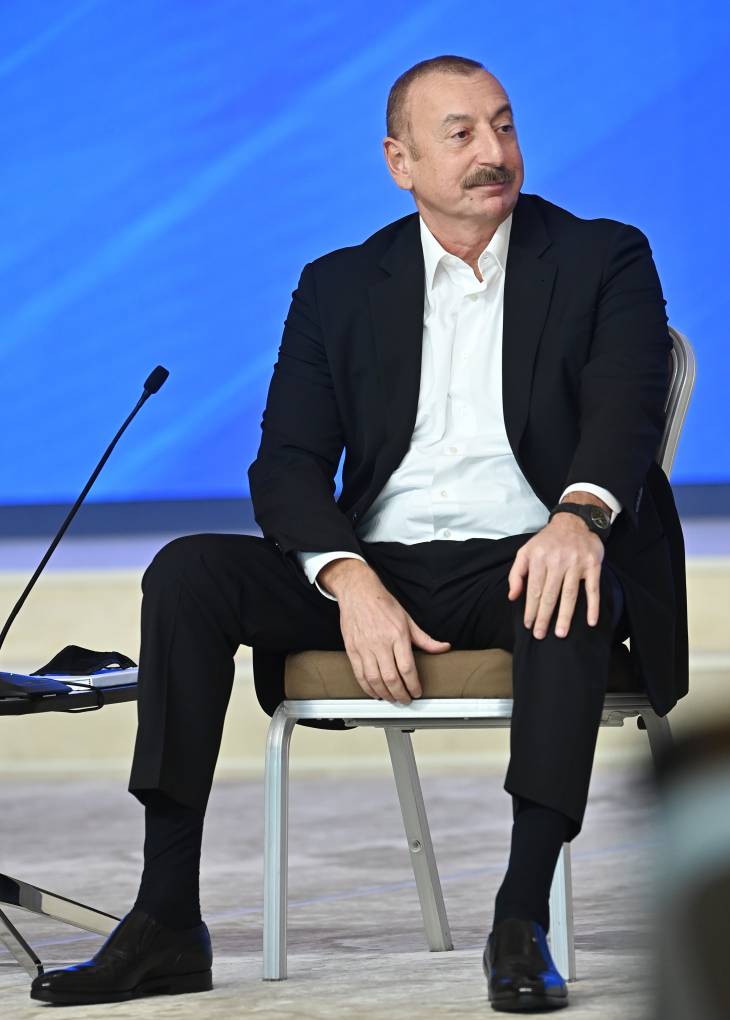
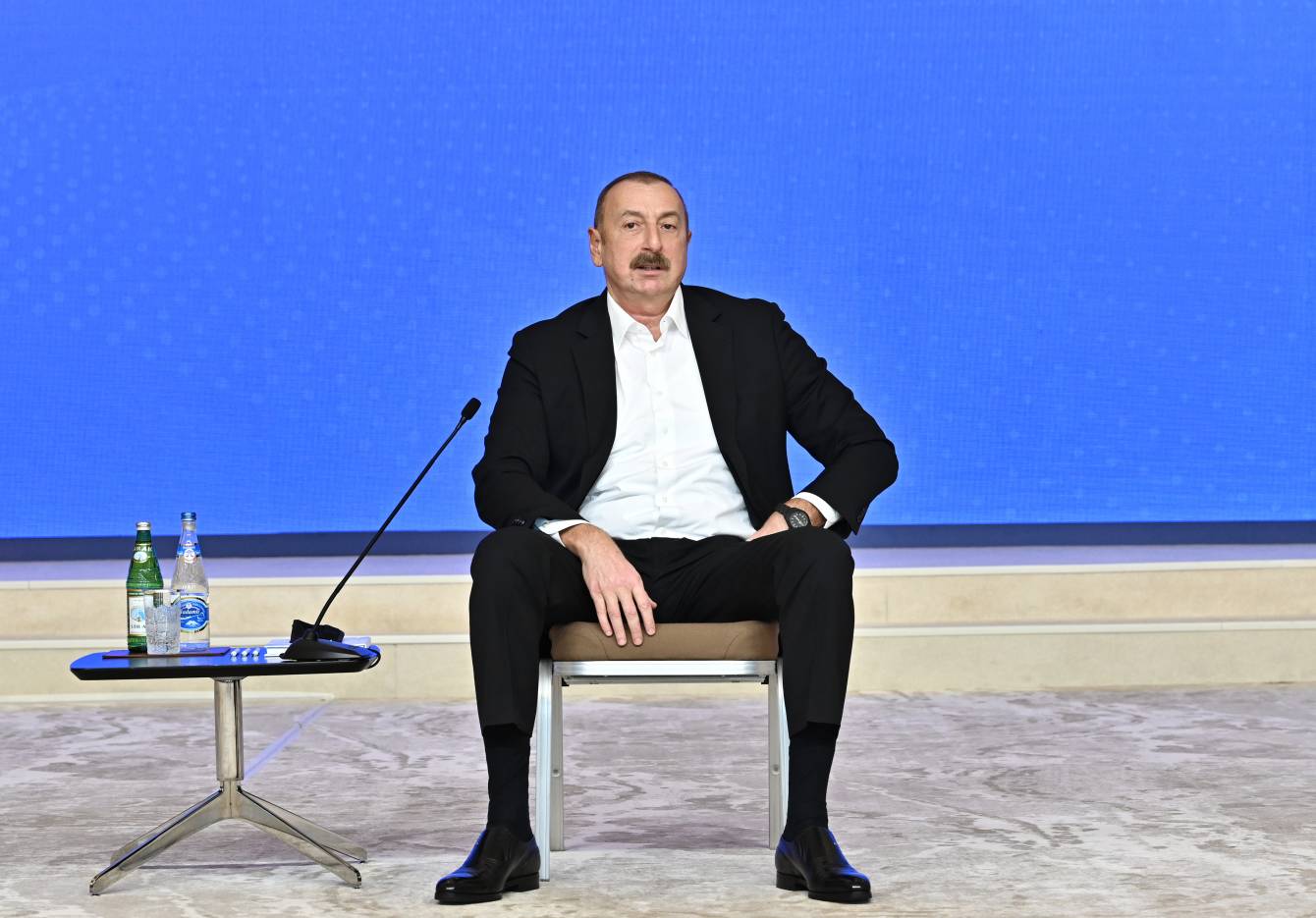
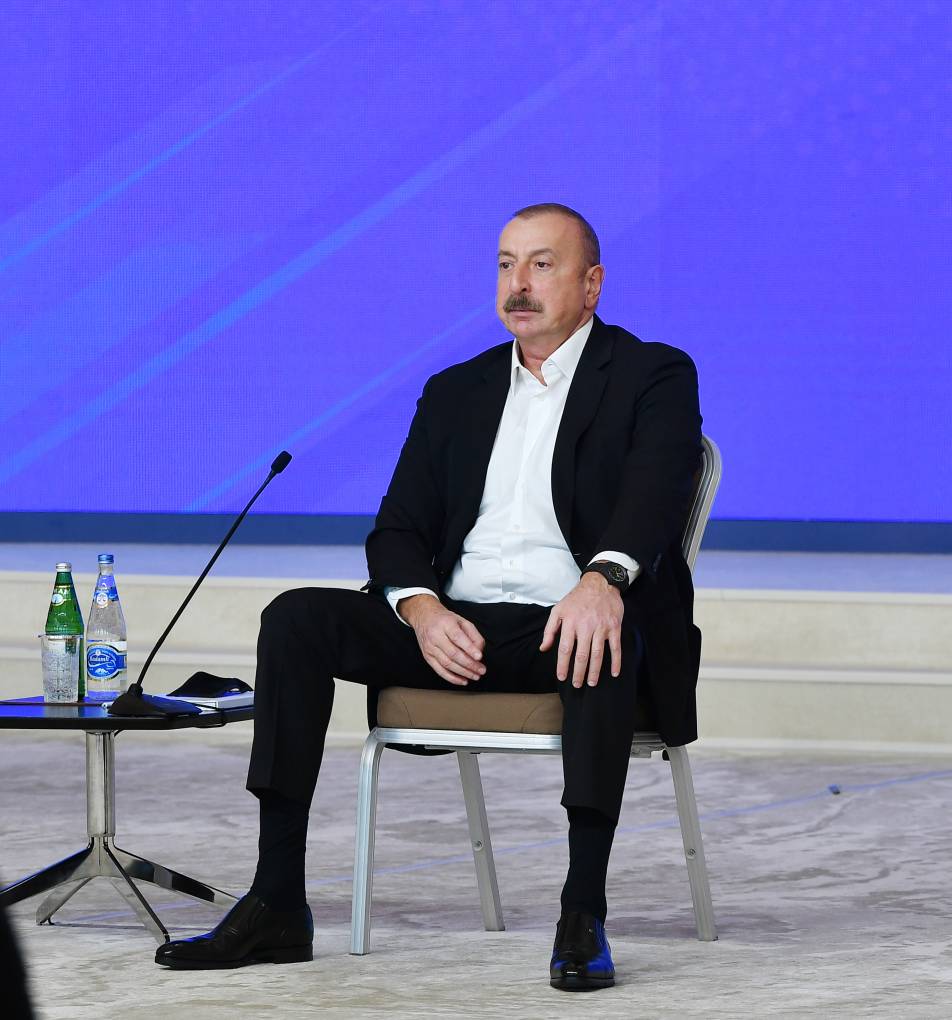
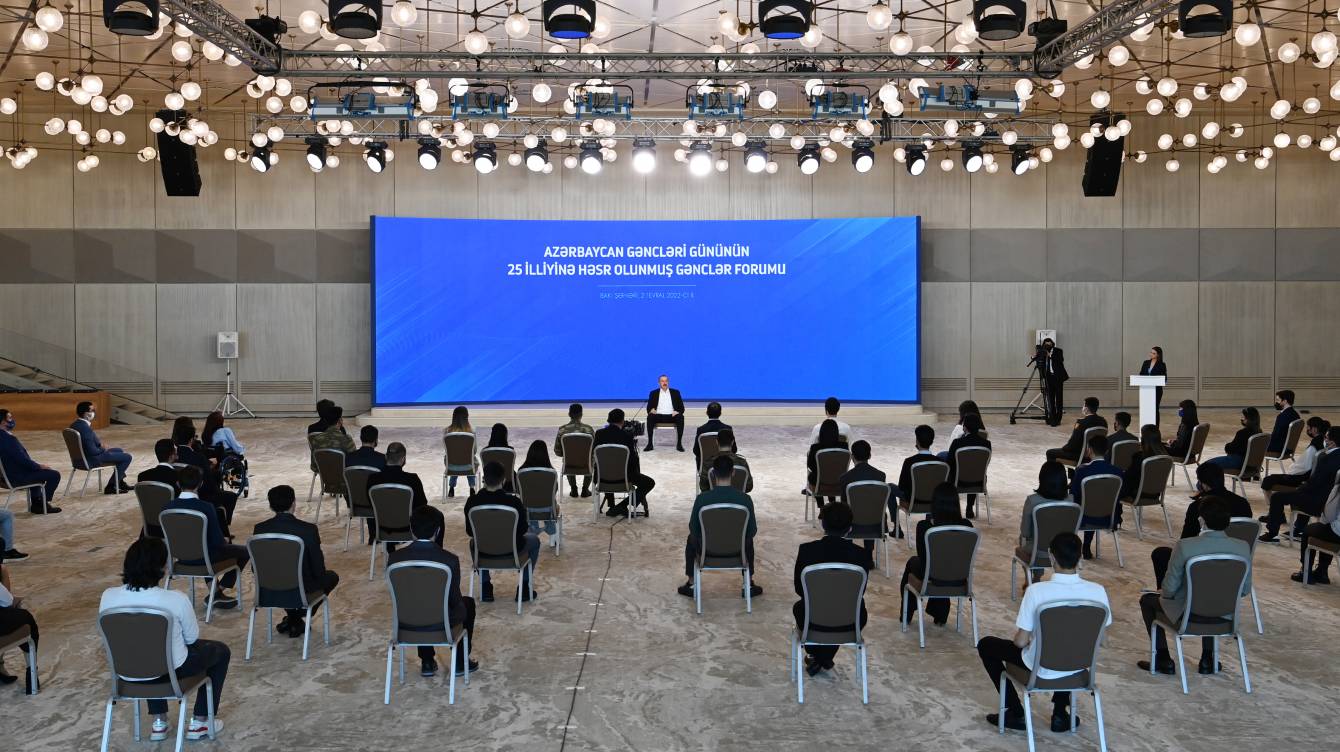
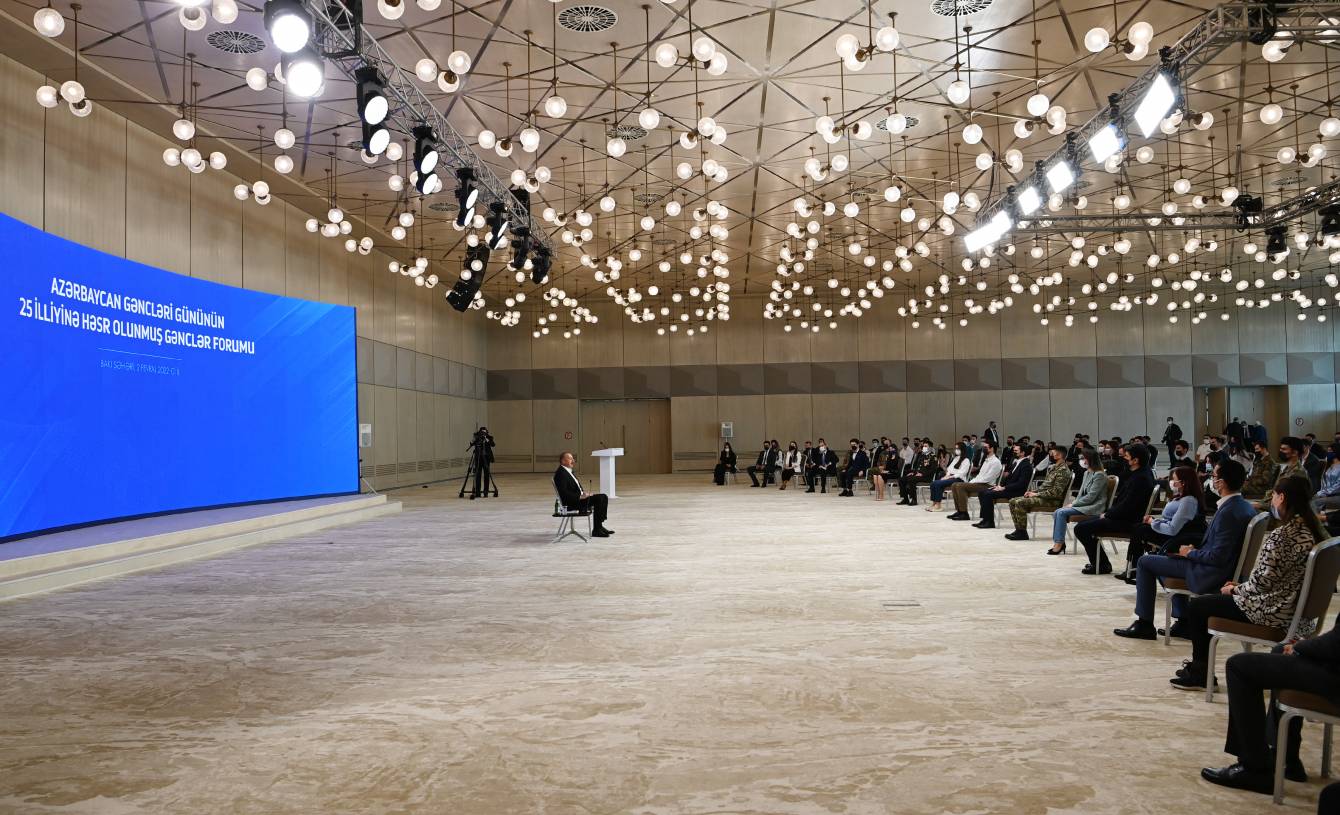
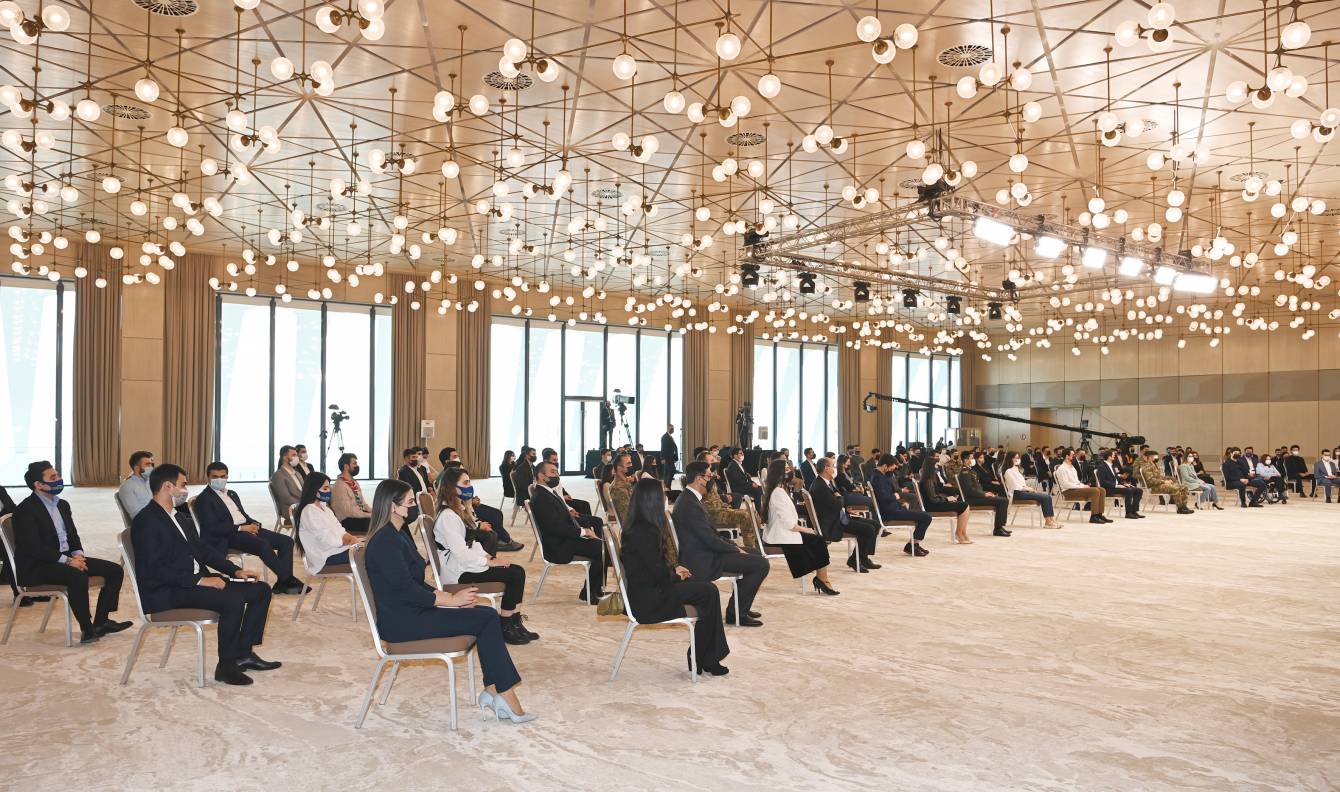
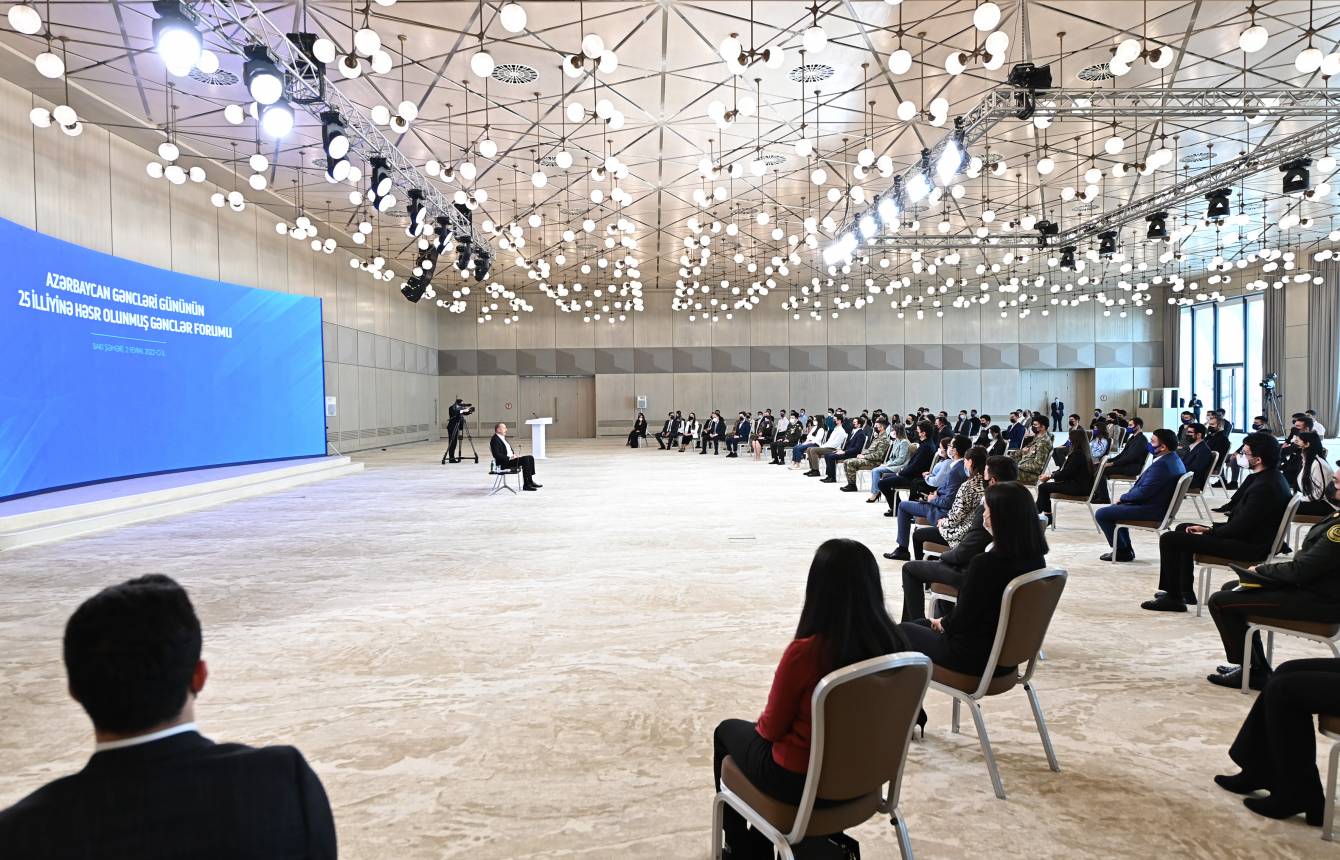
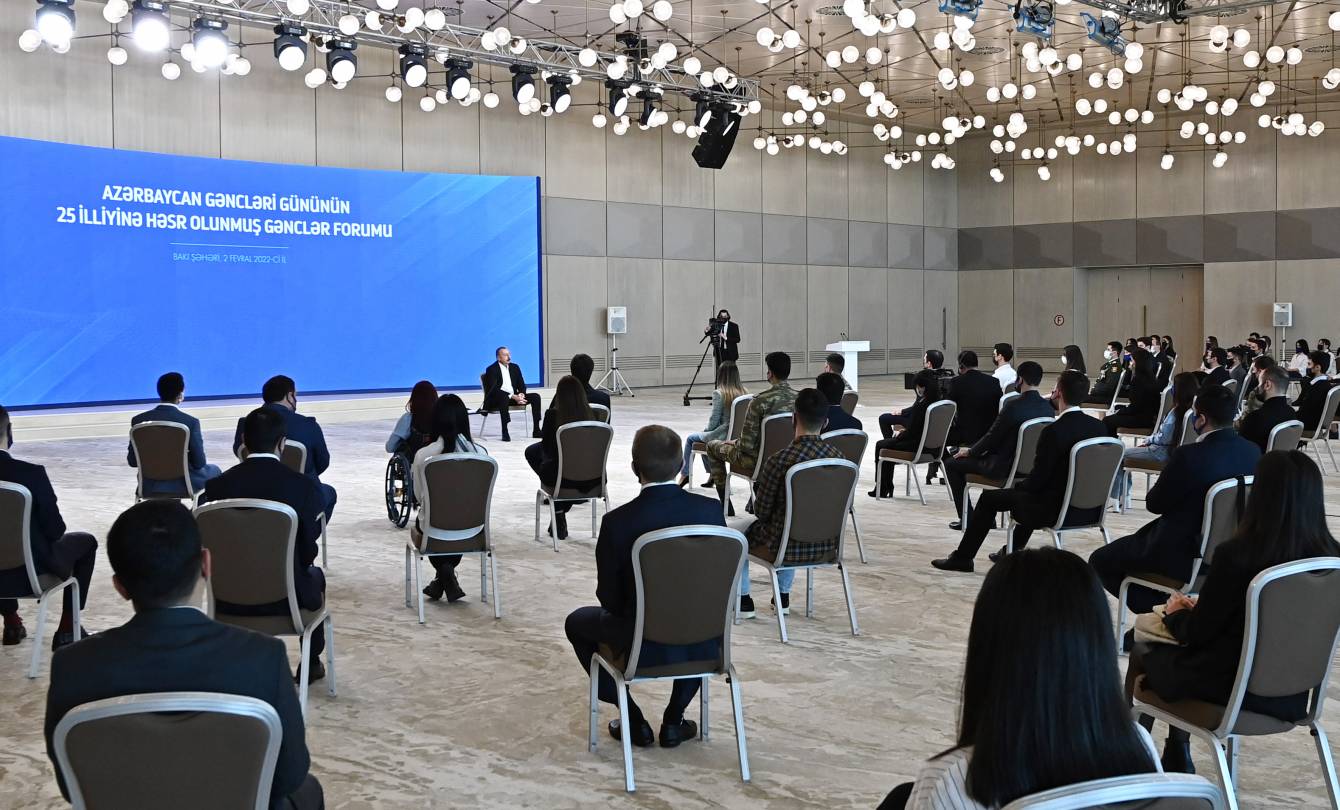
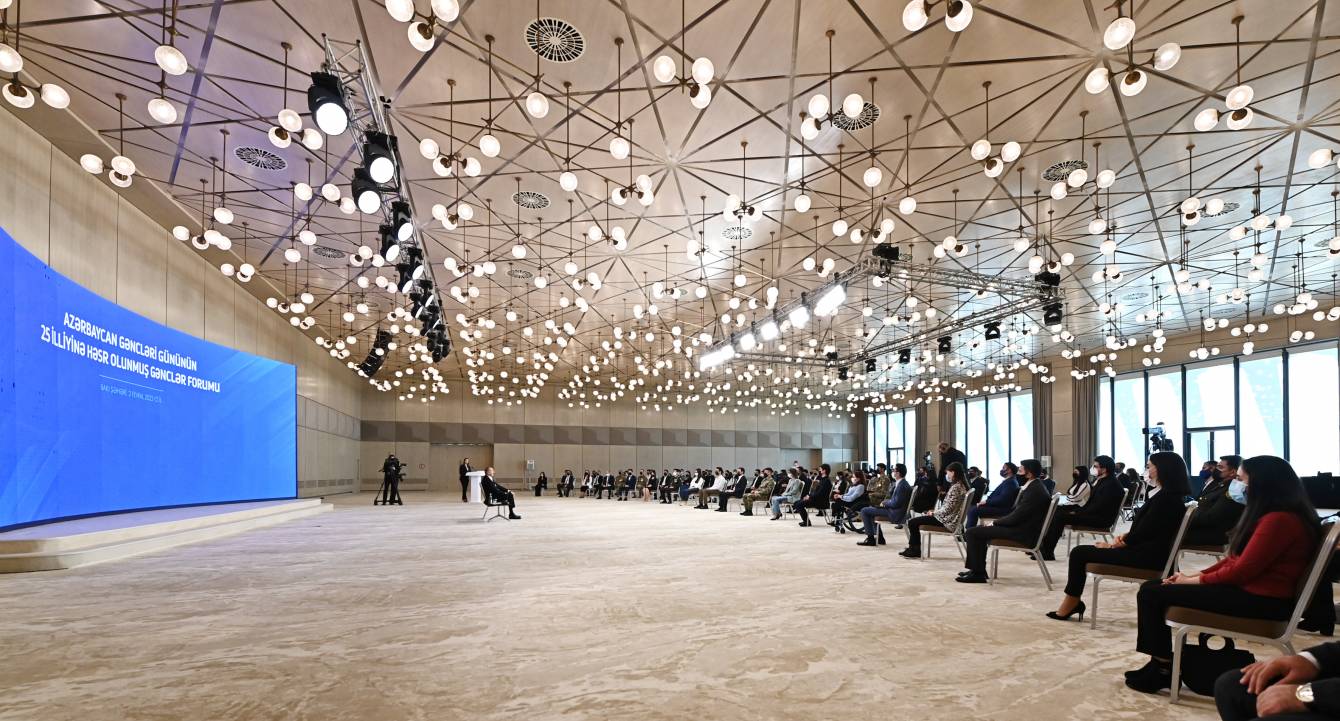
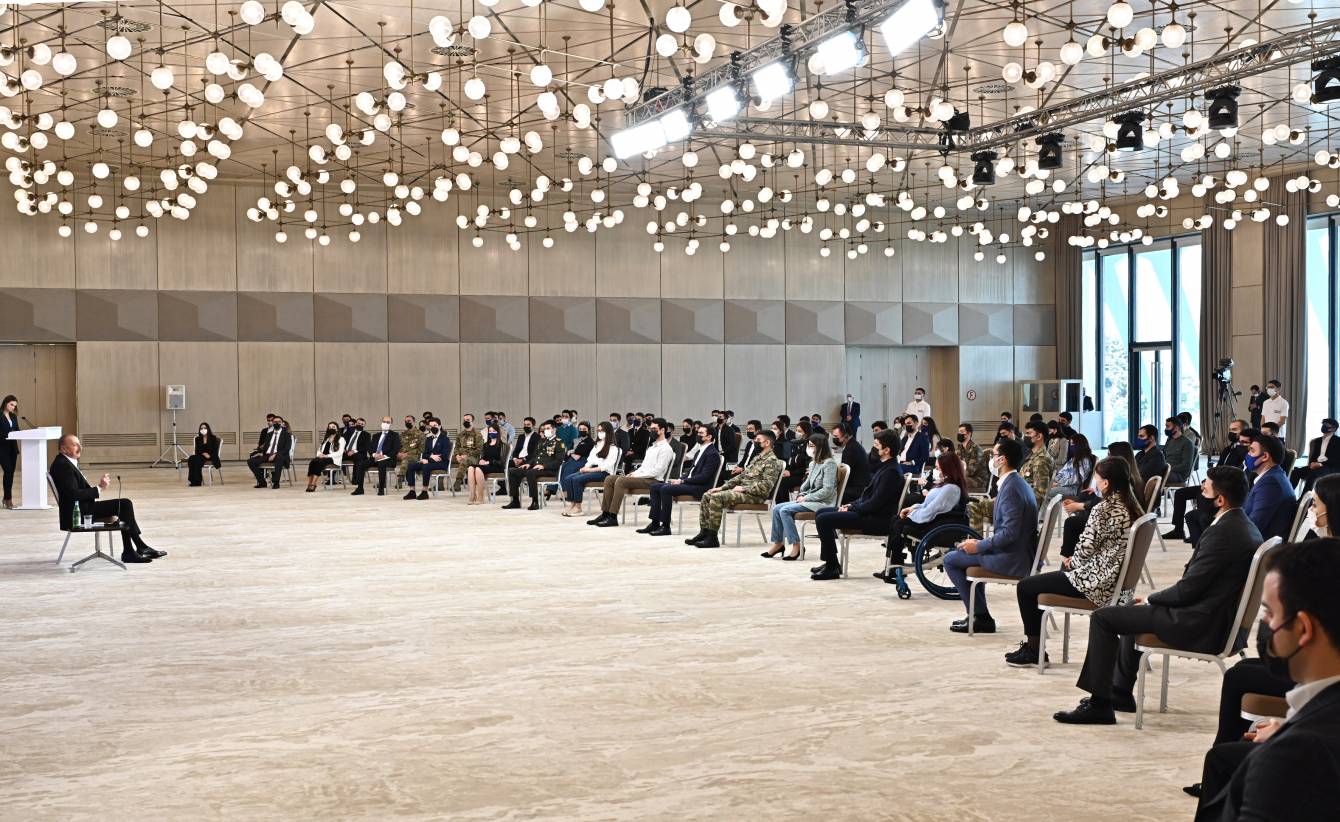
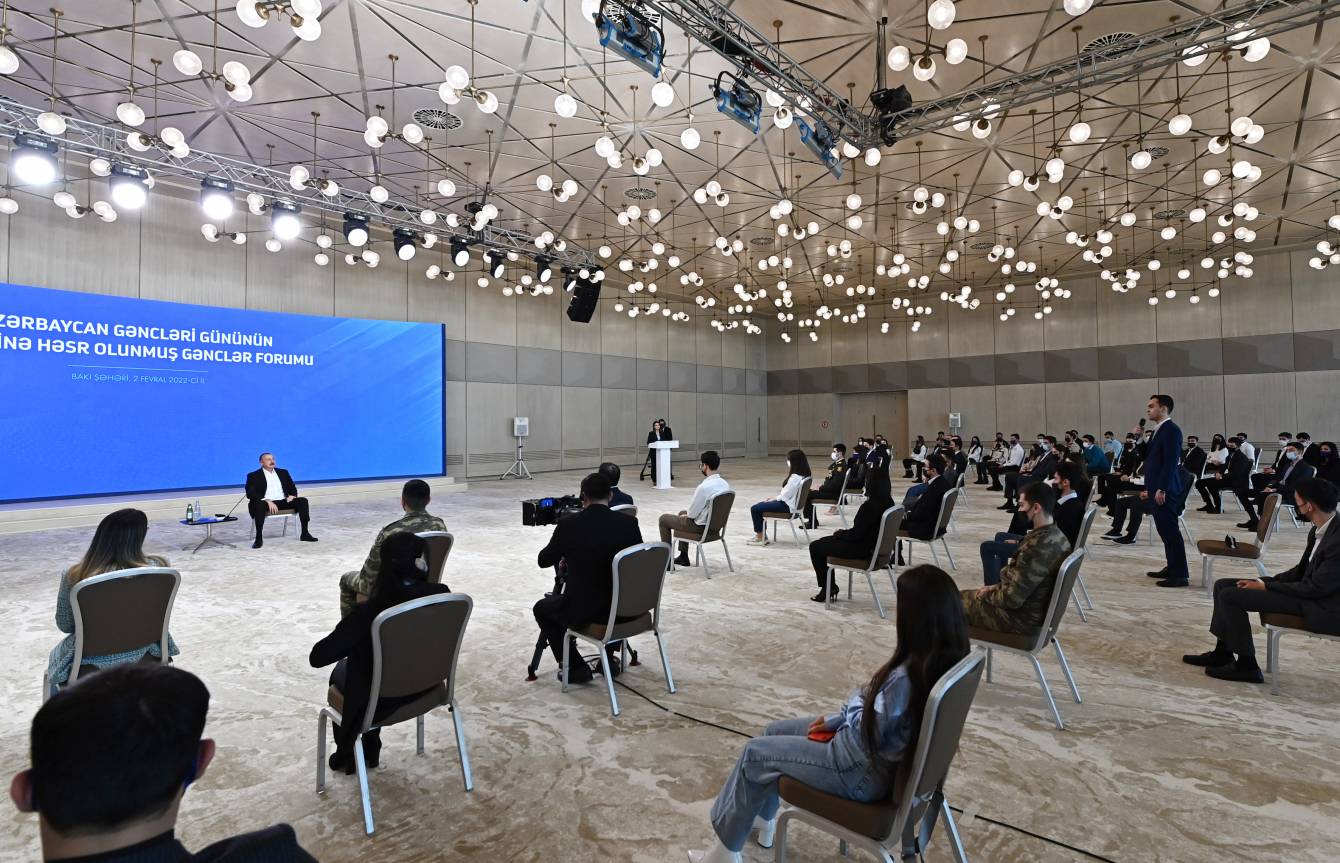
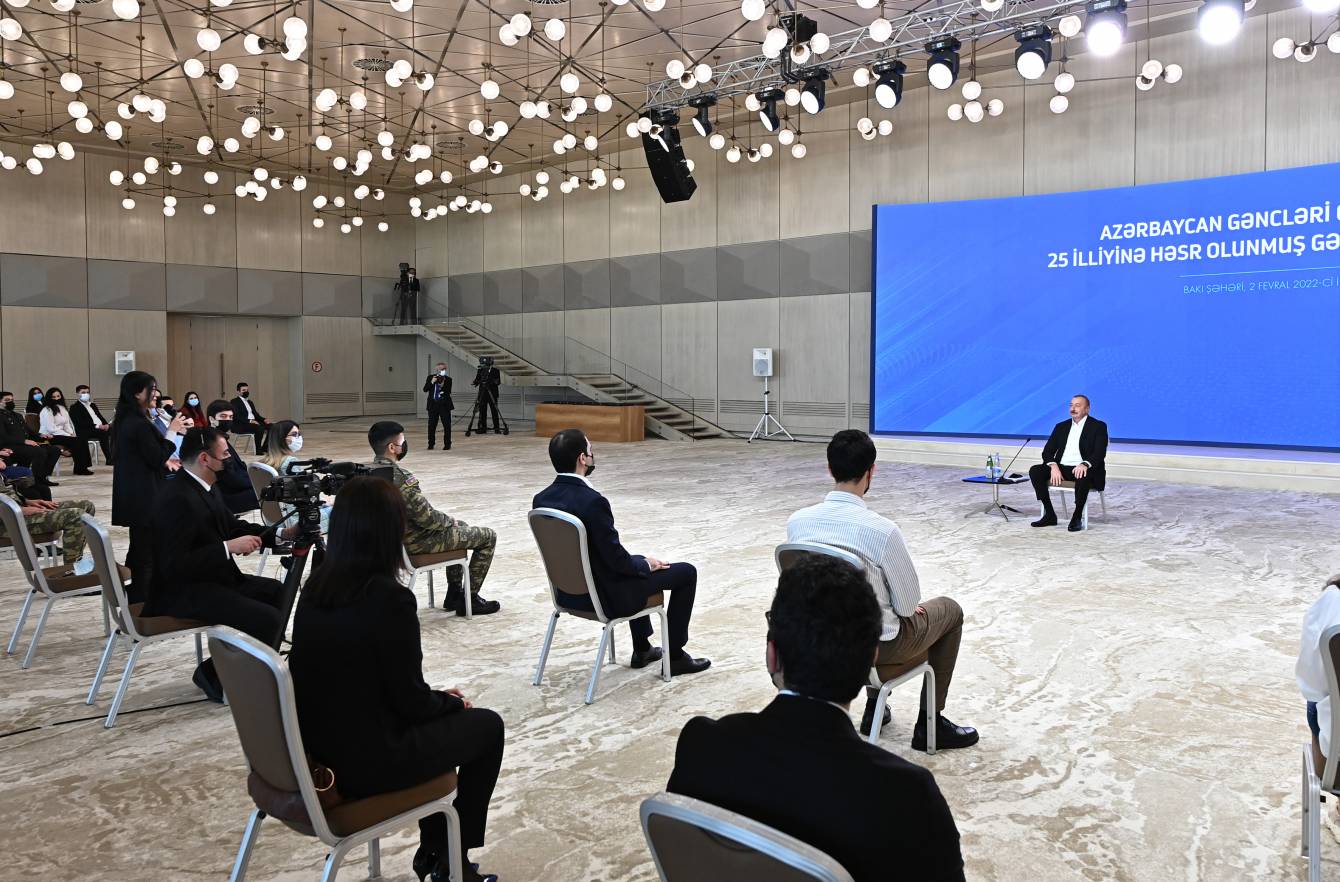
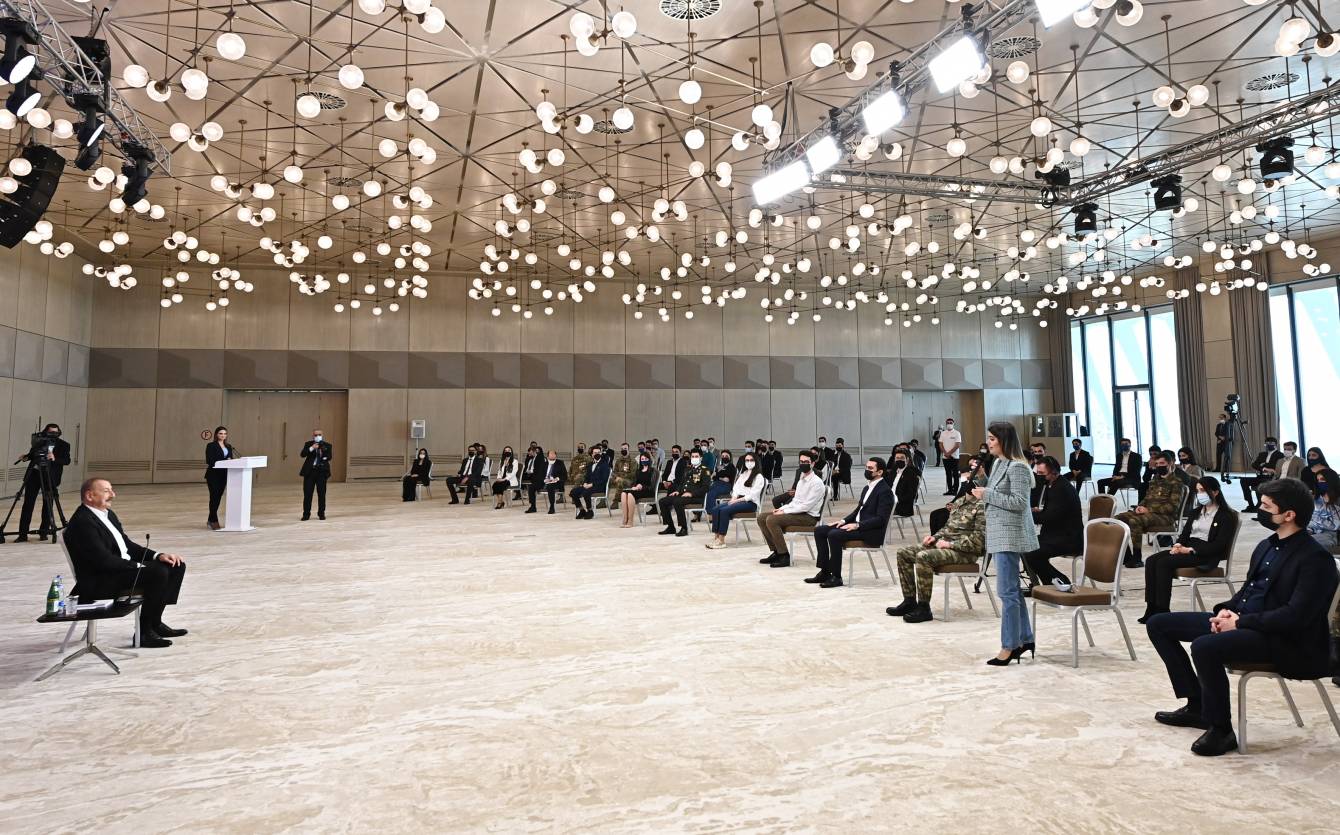
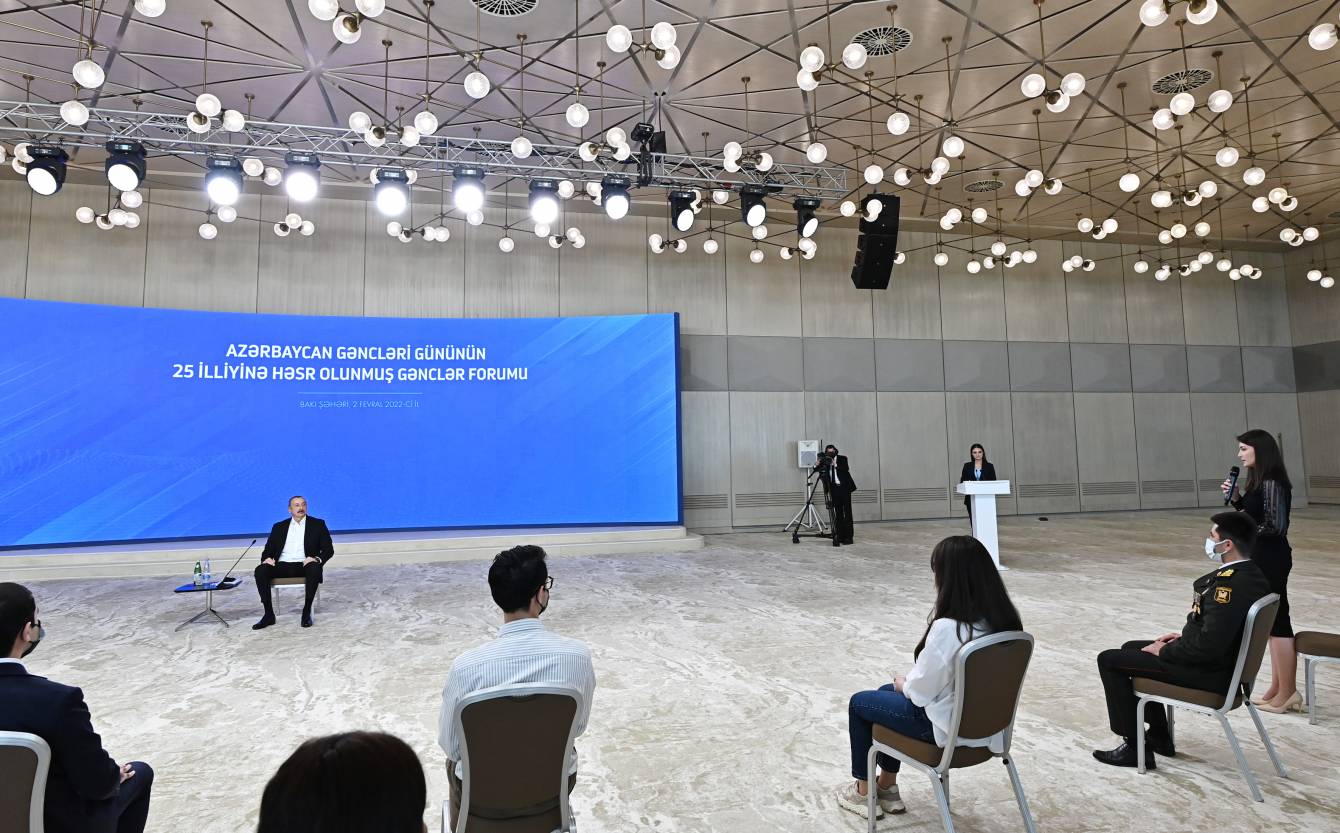
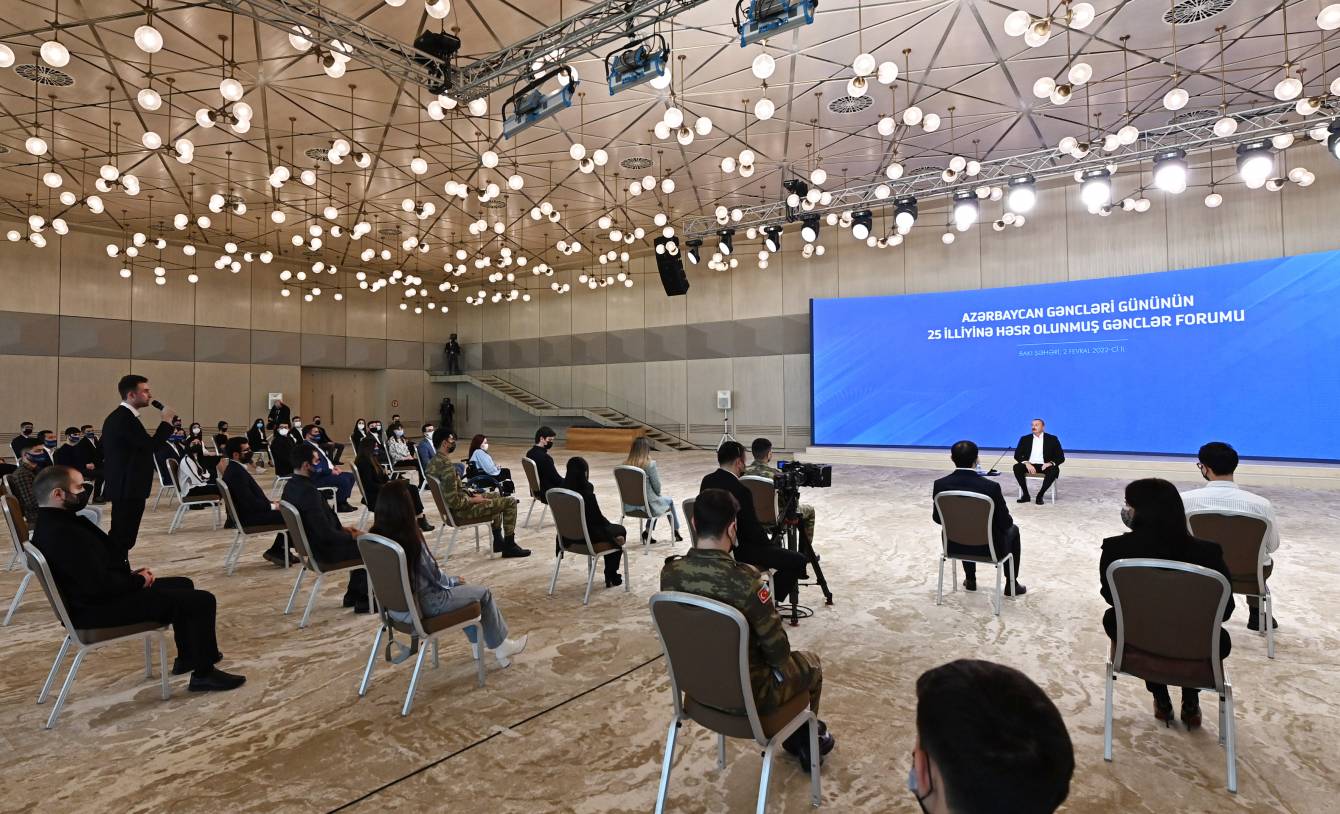
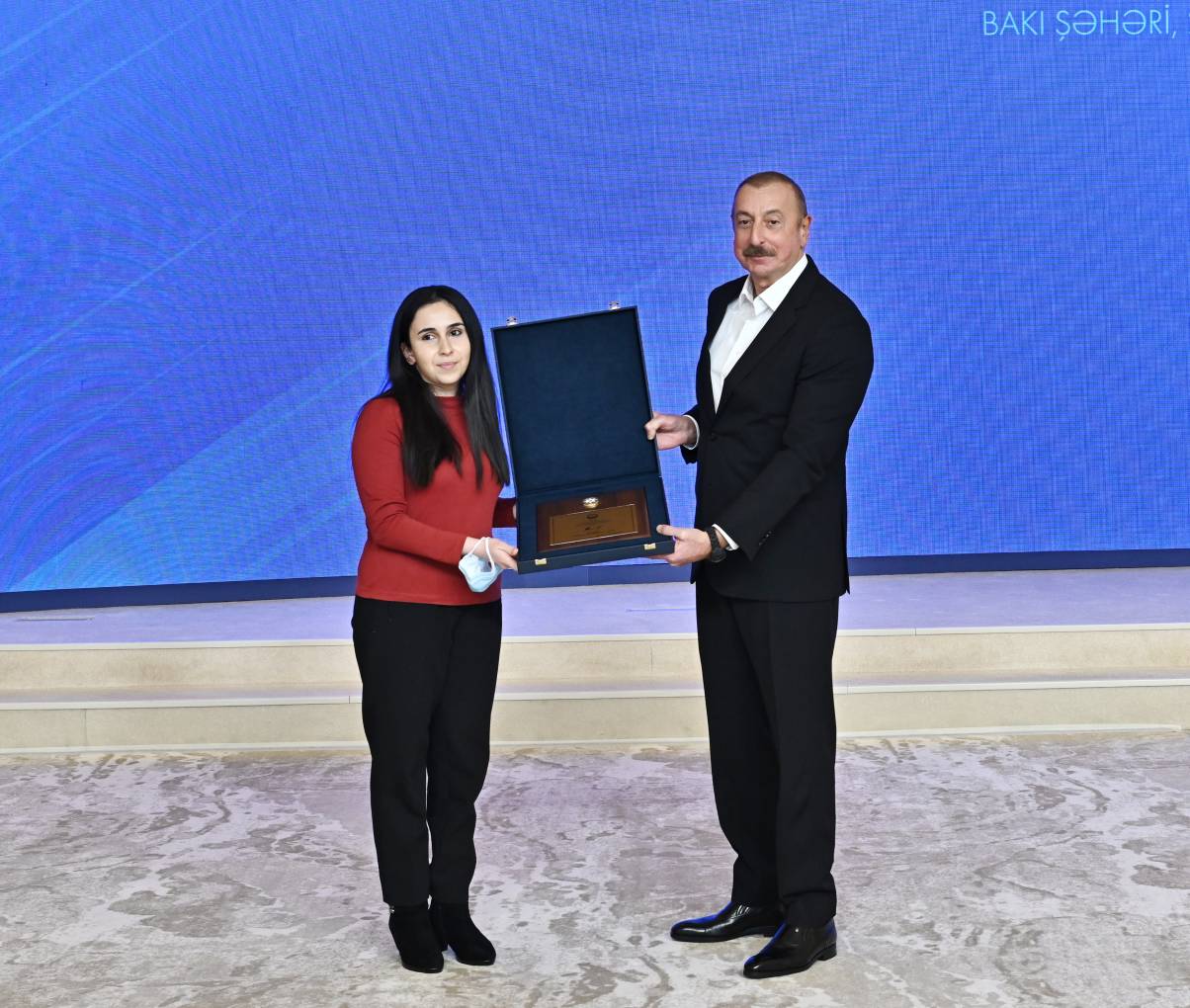
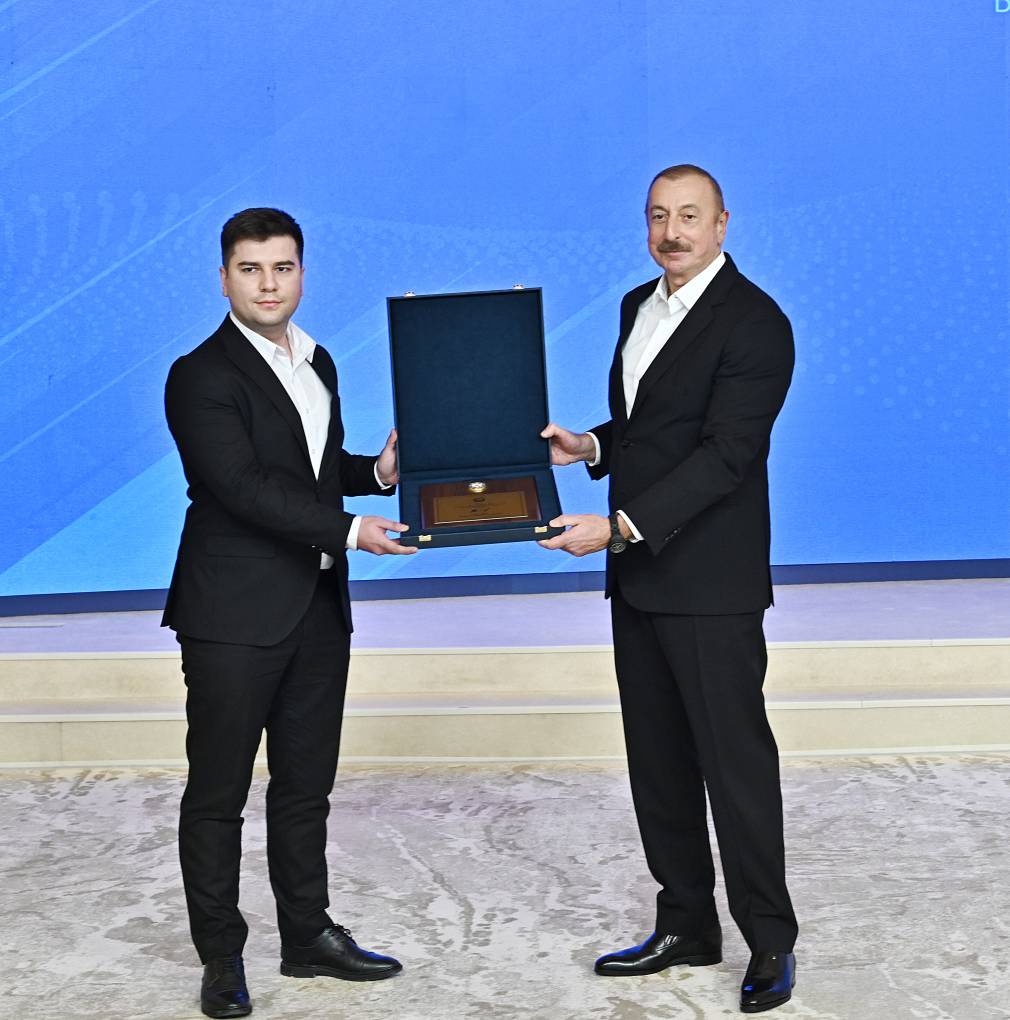
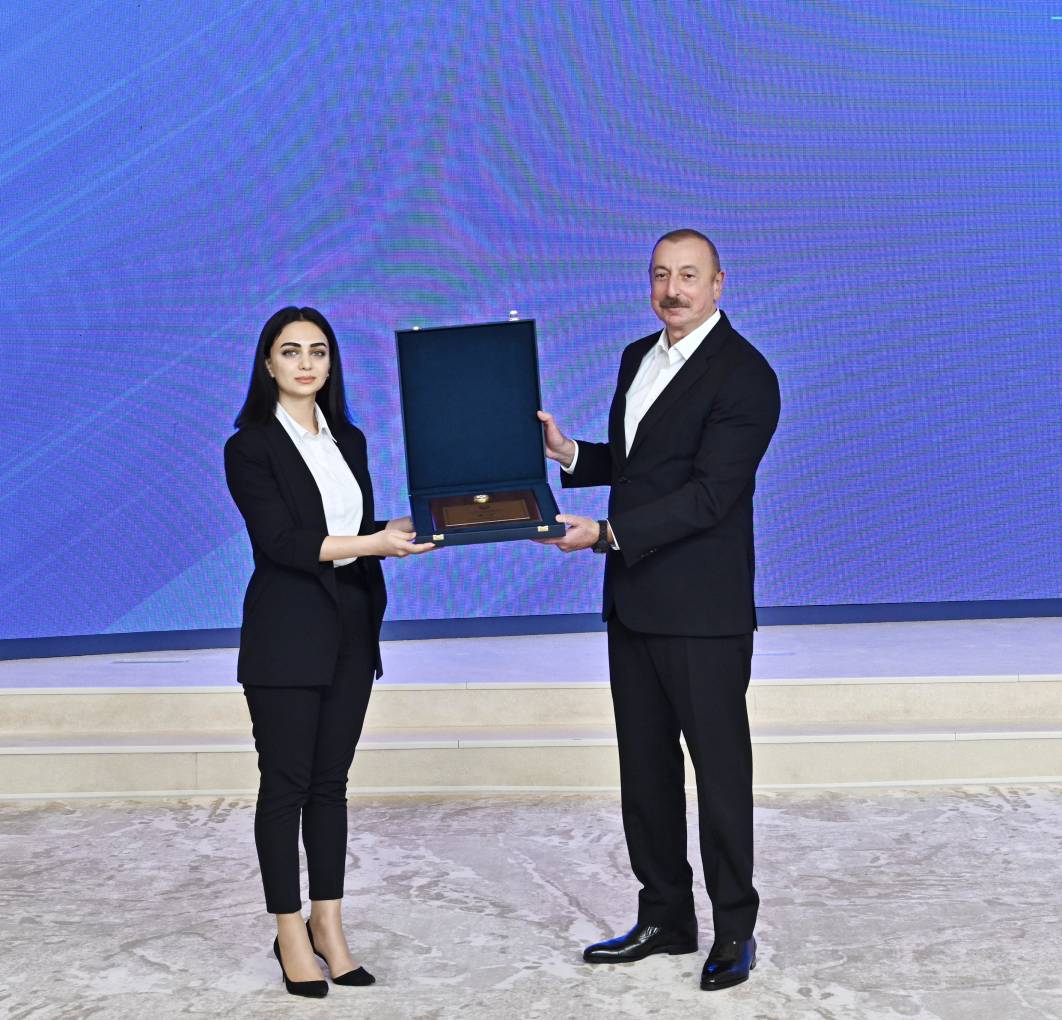
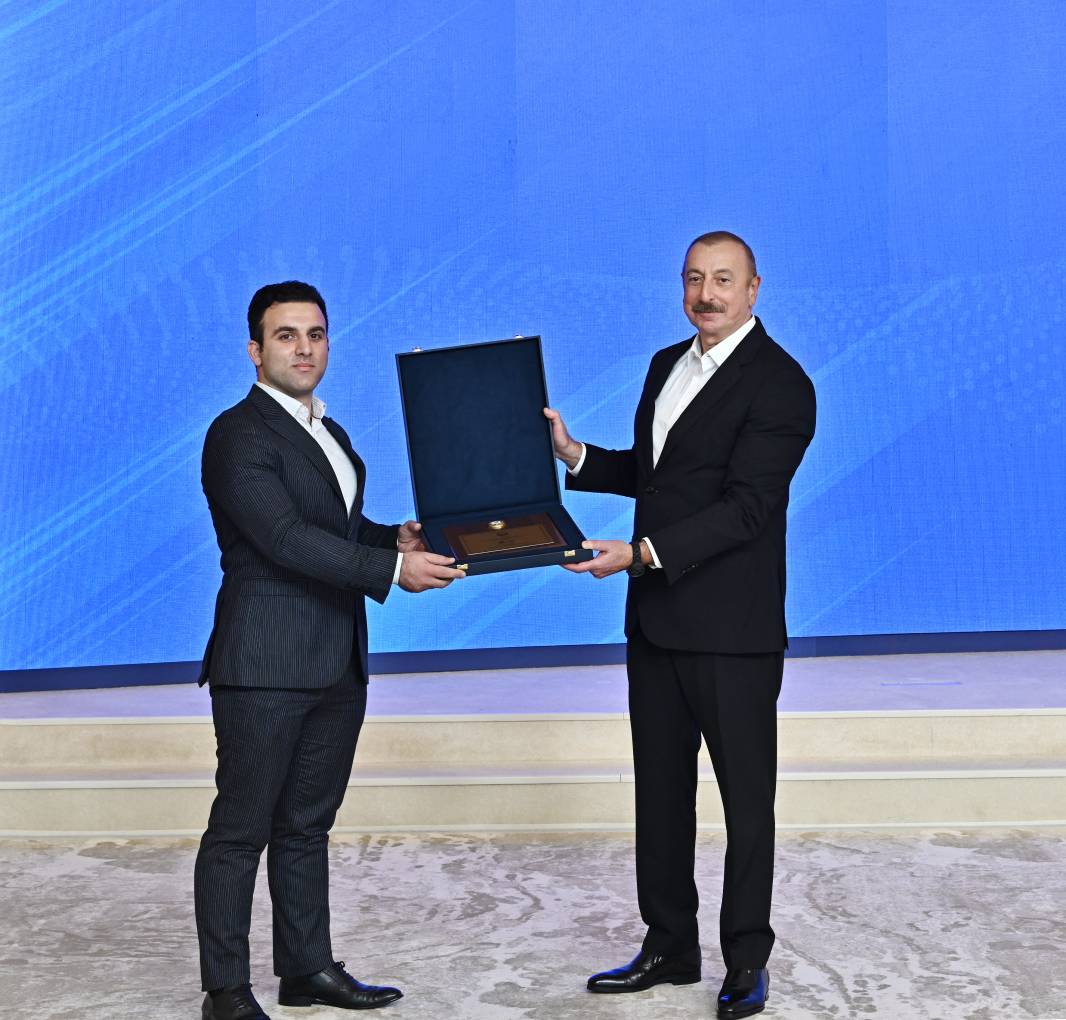
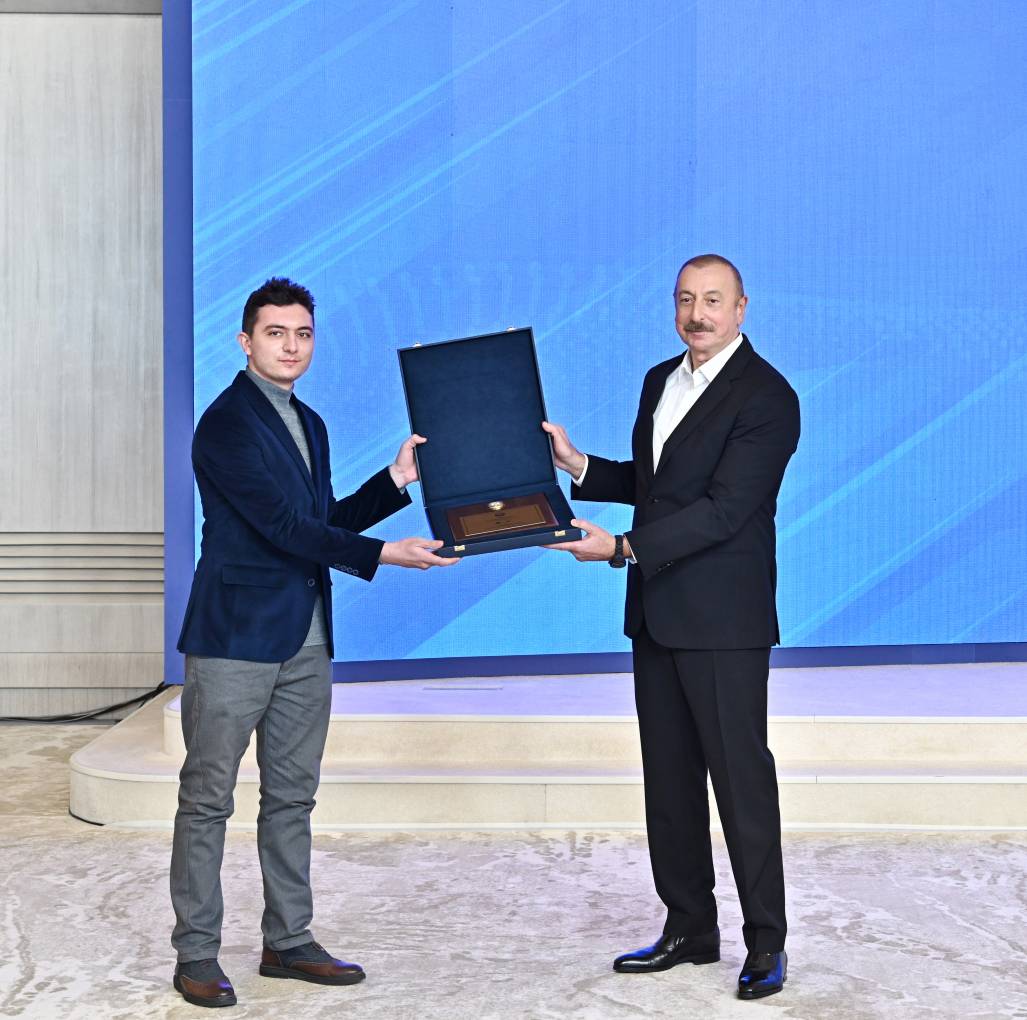

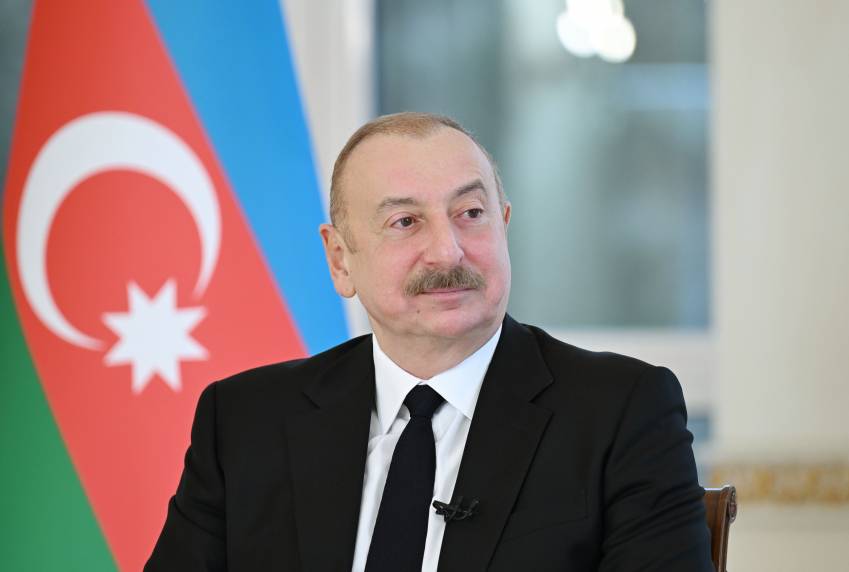
Your Eminence,
We were deeply saddened to hear of the passing of His Holiness Pope Francis, Head of the Holy See and one of the most prominent religious figures of our time.
In the person of Pope Francis, the international community and the Catholic world have lost...
21 April 2025, 14:13I sincerely congratulate you and the entire Christian community of Azerbaijan on the sacred holiday of Easter, and I extend my wishes of happiness and well-being to all of you.
In Azerbaijan, which has rich traditions of tolerance, there has never been a case of...
18 April 2025, 16:25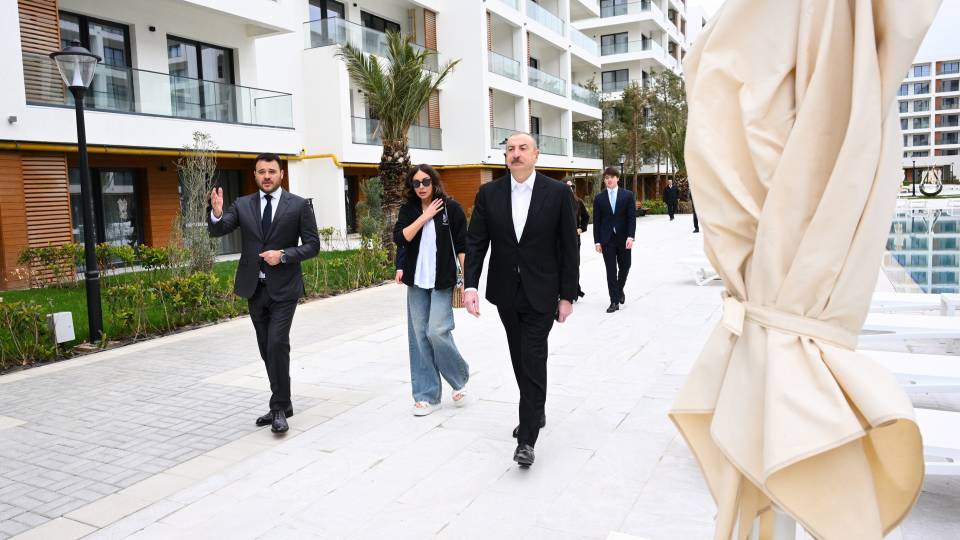
Dear Mr. Çavuşoğlu,
I was deeply saddened to learn of the passing of your father, Osman Çavuşoğlu — a profound loss for your family.
In this time of sorrow, I share in your grief and extend my deepest condolences to you and all the members of your family,...
18 April 2025, 12:37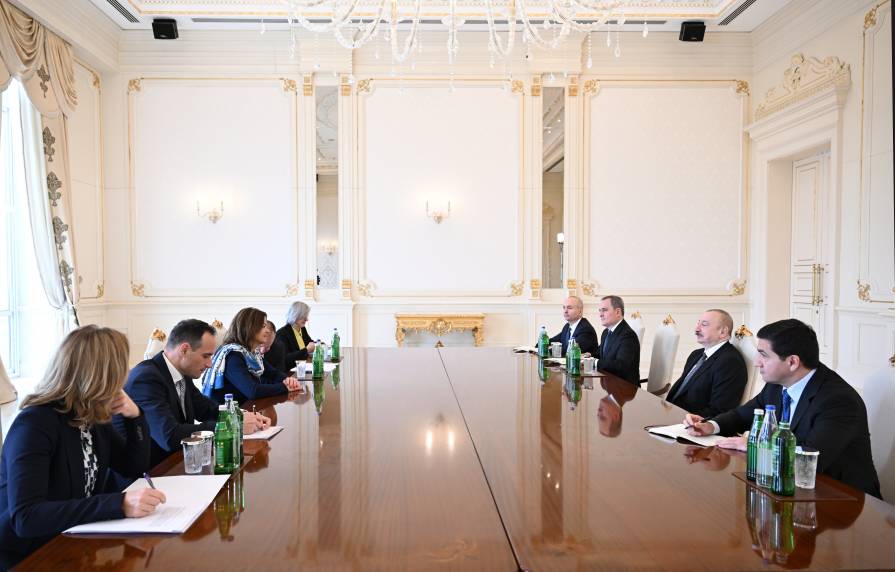
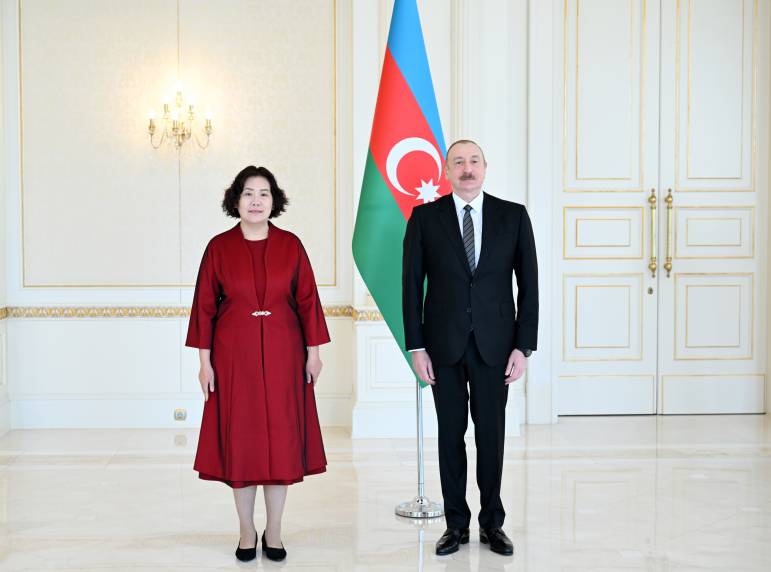
We were deeply saddened to learn of the passing of Richard Armitage – an eminent statesman, distinguished diplomat, dedicated public servant, and a great friend of Azerbaijan.
His years-long, productive service in international politics and diplomacy, coupled with...
16 April 2025, 18:06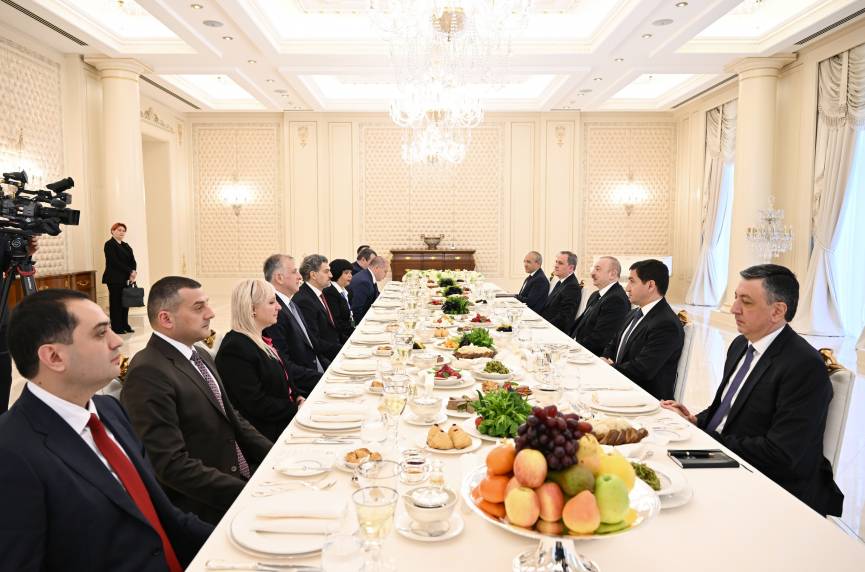
Statement by President Ilham Aliyev
- Dear Mr. President,
Dear guests,
Ladies and gentlemen,
Dear Mr. President, I would like to once again sincerely welcome you to Azerbaijan! I cordially congratulate you again on your election as a President and wish you ...
16 April 2025, 12:12